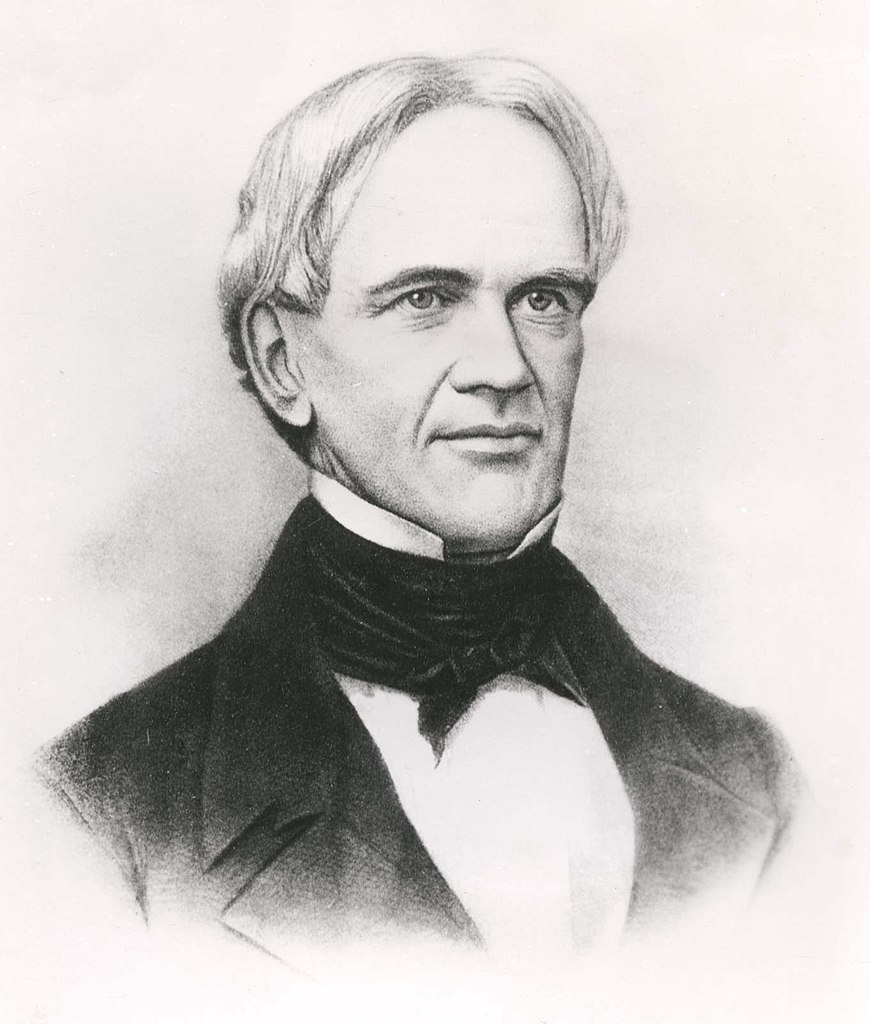

Debunking the Myth of Roberto Nevilis: Who Really Invented Homework?
- By Emily Summers
- February 18, 2019
For those of us who have attended a formal education setting, you might remember the frustration of getting homework from most of your teachers. Before class ends, your teacher instructs your class to answer a certain page of your book or to write an essay about the topic you had just discussed.
Some of us really didn’t like doing homework. It was very time-consuming and, on top of extra-curricular activities, house chores, and other tasks you needed to do, you had very little time to yourself and your hobbies before having to go to sleep.
If you’ve ever been curious enough to find out who to thank for inventing homework, Google and several websites will tell you that it’s a man named Roberto Nevilis. That he invented homework as a form of punishment for underperforming students and, almost a thousand years later, billions of students are frustrated both at school and at home because of him.
But that, like a lot of things on the internet, simply isn’t true. In fact, Roberto Nevilis doesn’t even exist.
Who Invented Homework? Not Roberto Nevilis.
The nail in the coffin, a brief history on the education system, the father of modern homework, is homework still effective.
Online, there are many articles claiming that Roberto Nevilis was the first educator who came up with giving students homework. But if you look at the websites that claim this, you’ll find that it’s mostly forum websites or obscure educational blogs. No credible website or news source even mentions the name Roberto Nevilis. And for a guy who has affected the educational career of anyone who has had a formal education, you’d think a credible website would mention him at least once. Or some of the less-credible websites would confirm his contribution without saying the word “allegedly” or a vague “scientists believe” or the like.

Nevilis was supposedly a teacher based in Venice, Italy when he invented homework. Some claim that he invented it in 1095, while others claim he invented it in 1905 before it spread to Europe and to the rest of the world. It was said to be a form of punishment for students who underperformed in class. Students who performed well in class were spared from homework.
Either way, this claim is dubious. In 1095, education was still very informal around Europe and an organized education system in the continent didn’t start until 800 years later. In the 1500’s, English nobility were still being taught by private tutors.
Around 1095, the Roman Empire had long fallen and the Pope was still organizing the very first crusade and education was still informal, so it would be impossible for Nevilis to not only hold a class and give out homework, but to also spread out his idea to the rest of Europe when there was still no organized educational system.
And it couldn’t have been 1905, either. In 1901, California passed an act that banned homework for students younger than 15 years old before the law was revoked in 1917. That means Nevilis – assuming he does exists and isn’t the work of some internet trolls – couldn’t have invented it in 1905 in Europe if it already made its way to California and probably the rest of the world four years earlier.
And if that’s not enough evidence, just take a look at all the information you can get on him online. The only websites that mention his name: Quora, WikiAnswers, clickbait articles, and blogs for websites that help you write your homework (though if they can’t do their research properly, you might want to stay away from their services).
There’s no credible website mentioning him anywhere. And the websites that do mention him are very vague in describing his contribution. “Scientists believe” becomes a very sketchy claim when a website doesn’t cite a credible source. And if you try to search “Roberto Nevilis,” only the same handful of websites show up.
The truth is, homework existed dating back to the earliest civilizations and the first forms of education. In feudal times, education was reserved for the wealthy men. Those who weren’t rich had no time to study reading or philosophy and were busy making a living. Wealthy young women were trained in the more womanly arts, though princesses and nobles were expected to know a few things and were tutored as well. While they weren’t given workbooks and links to online quizzes, their tutors had expected them to read literary pieces during their free time.

The earliest evidence of a formal school comes from the Sumerian civilization. They had Edubas, which were houses of clay tablets were scribes practiced how to read and write. Archaeologists found student exercises etched into the tablets. Not much is known if they followed a schedule or were all taught by one teacher like the education system today.
During these times, however, homework did not involve answering questions or writing down essays as we’ve come to know it today. If we look back at history, there were other forms of educational methods that students and teachers at the time would have considered the homework of their time.
While we can’t pin the invention of homework to a certain teacher, we can trace back who was responsible for making homework that way it is to this day: Johann Gottlieb Fichte, a German philosopher known as the founding father of German nationalism.

In 1814, Prussia had a problem stirring nationalism among its citizens. Instead of serving the country after the war, citizens could choose to go back to whatever they were doing without thinking of dedicating their time and sacrifice to the country. There was no sense of pride or nationalism.
And so, Fichte conceived the Volkschule – a mandatory nine-year education similar to primary and lower secondary education provided by the state – and a Realschule – a secondary school available to aristocrats. Those attending the Volkschule were given the homework we know today as a way to demonstrate the state’s power even during personal time.
The system spread across Europe, but not in a totally dominating way. Some countries continued with their own system, which is why countries such as Finland don’t impose homework on their students. However, in 1843, back when the United States still practiced private tutors or informal lessons, Horace Mann reformed public education after travelling to Prussia and saw their education system and adapted it into the American education system. Thus, homework eventually evolved into a global practice.
Homework, therefore, is the result of nationalism and getting students to understand that “me time” actually falls on government time if they want to get their education. Contrary to what many websites would say, it wasn’t invented as a punishment for academically failing students.
However, over 200 years had passed since homework’s evolution into what we know it is today. So, is it still necessary to keep our students burdened with extra assignments? On one hand, it can be a good way to teach students time management skills. We like to think that work stays at work and personal life stays out of work, but as working adults, we know this is not the case. Homework at an early age teaches students to use their time wisely.
And while homework can still be helpful in students’ education, it’s only helpful to a certain extent. When plenty of teachers pile on homework, they’re depriving students of time to focus on their extra-curricular activities and personal life.

For those of us who have graduated with high grades, we’ve learned the hard way that a spotless report card can get our foot on the door, but if we have poor interpersonal skills and lack the skills you can only get outside of academics, you can’t achieve total success. Homework is good, but only to an extent. Then, it just becomes an unnecessary burden on students.
In fact, if you look at Finland and Japan – countries that don’t practice giving out homework – you can see that homework is unnecessary if the educational system favors it. Finland has shorter school days, longer summer breaks, and have an educational system where students aren’t required to start school until the age of seven. However, their students have always ranked high in terms of exams.
It’s because in Finland, a teaching career is at the same league as doctors and lawyers. Compare that to our current education system, where teachers are underappreciated and harried in public schools. Finland’s education system allows students more leeway, showing how it is possible to produce bright students without putting too much pressure on them.
We’ve all been frustrated with homework back when we were studying, but homework is actually more than just a nuisance we all have to face in our educational career. It’s actually an important factor which can shape productivity and the time students have for other factors of their education.
About the Author
Emily summers.

What is the Difference Between Reverse Osmosis and Ultrafiltration

9 Subjects You Can Study in College

10 Areas of Law That You can Study

What Is Fundraising and How Does It Work

Is the D Important in Pharmacy? Why Pharm.D or RPh Degrees Shouldn’t Matter

How to Email a Professor: Guide on How to Start and End an Email Conversation

Everything You Need to Know About Getting a Post-Secondary Education

Grammar Corner: What’s The Difference Between Analysis vs Analyses?

History Cooperative
The Homework Dilemma: Who Invented Homework?
The inventor of homework may be unknown, but its evolution reflects contributions from educators, philosophers, and students. Homework reinforces learning, fosters discipline, and prepares students for the future, spanning from ancient civilizations to modern education. Ongoing debates probe its balance, efficacy, equity, and accessibility, prompting innovative alternatives like project-based and personalized learning. As education evolves, the enigma of homework endures.
Table of Contents
Who Invented Homework?
While historical records don’t provide a definitive answer regarding the inventor of homework in the modern sense, two prominent figures, Roberto Nevelis of Venice and Horace Mann, are often linked to the concept’s early development.
Roberto Nevelis of Venice: A Mythical Innovator?
Roberto Nevelis, a Venetian educator from the 16th century, is frequently credited with the invention of homework. The story goes that Nevelis assigned tasks to his students outside regular classroom hours to reinforce their learning—a practice that aligns with the essence of homework. However, the historical evidence supporting Nevelis as the inventor of homework is rather elusive, leaving room for skepticism.
While Nevelis’s role remains somewhat mythical, his association with homework highlights the early recognition of the concept’s educational value.
Horace Mann: Shaping the American Educational Landscape
Horace Mann, often regarded as the “Father of American Education,” made significant contributions to the American public school system in the 19th century. Though he may not have single-handedly invented homework, his educational reforms played a crucial role in its widespread adoption.
Mann’s vision for education emphasized discipline and rigor, which included assigning tasks to be completed outside of the classroom. While he did not create homework in the traditional sense, his influence on the American education system paved the way for its integration.
The invention of homework was driven by several educational objectives. It aimed to reinforce classroom learning, ensuring knowledge retention and skill development. Homework also served as a means to promote self-discipline and responsibility among students, fostering valuable study habits and time management skills.
Why Was Homework Invented?
The invention of homework was not a random educational practice but rather a deliberate strategy with several essential objectives in mind.
Reinforcing Classroom Learning
Foremost among these objectives was the need to reinforce classroom learning. When students leave the classroom, the goal is for them to retain and apply the knowledge they have acquired during their lessons. Homework emerged as a powerful tool for achieving this goal. It provided students with a structured platform to revisit the day’s lessons, practice what they had learned, and solidify their understanding.
Homework assignments often mirrored classroom activities, allowing students to extend their learning beyond the confines of school hours. Through the repetition of exercises and tasks related to the curriculum, students could deepen their comprehension and mastery of various subjects.
Fostering Self-Discipline and Responsibility
Another significant objective behind the creation of homework was the promotion of self-discipline and responsibility among students. Education has always been about more than just the acquisition of knowledge; it also involves the development of life skills and habits that prepare individuals for future challenges.
By assigning tasks to be completed independently at home, educators aimed to instill valuable study habits and time management skills. Students were expected to take ownership of their learning, manage their time effectively, and meet deadlines—a set of skills that have enduring relevance in contemporary education and beyond.
Homework encouraged students to become proactive in their educational journey. It taught them the importance of accountability and the satisfaction of completing tasks on their own. These life skills would prove invaluable in their future endeavors, both academically and in the broader context of their lives.
When Was Homework Invented?
The roots of homework stretch deep into the annals of history, tracing its origins to ancient civilizations and early educational practices. While it has undergone significant evolution over the centuries, the concept of extending learning beyond the classroom has always been an integral part of education.
Earliest Origins of Homework and Early Educational Practices
The idea of homework, in its most rudimentary form, can be traced back to the earliest human civilizations. In ancient Egypt , for instance, students were tasked with hieroglyphic writing exercises. These exercises served as a precursor to modern homework, as they required students to practice and reinforce their understanding of written language—an essential skill for communication and record-keeping in that era.
In ancient Greece , luminaries like Plato and Aristotle advocated for the use of written exercises as a tool for intellectual development. They recognized the value of practice in enhancing one’s knowledge and skills, laying the foundation for a more systematic approach to homework.
The ancient Romans also played a pivotal role in the early development of homework. Young Roman students were expected to complete assignments at home, with a particular focus on subjects like mathematics and literature. These assignments were designed to consolidate their classroom learning, emphasizing the importance of practice in mastering various disciplines.
READ MORE: Who Invented Math? The History of Mathematics
The practice of assigning work to be done outside of regular school hours continued to evolve through various historical periods. As societies advanced, so did the complexity and diversity of homework tasks, reflecting the changing needs and priorities of education.
The Influence of Educational Philosophers
While the roots of homework extend to ancient times, the ideas of renowned educational philosophers in later centuries further contributed to its development. John Locke, an influential thinker of the Enlightenment era, believed in a gradual and cumulative approach to learning. He emphasized the importance of students revisiting topics through repetition and practice, a concept that aligns with the principles of homework.
Jean-Jacques Rousseau, another prominent philosopher, stressed the significance of self-directed learning. Rousseau’s ideas encouraged the development of independent study habits and a personalized approach to education—a philosophy that resonates with modern concepts of homework.
Homework in the American Public School System
The American public school system has played a pivotal role in the widespread adoption and popularization of homework. To understand the significance of homework in modern education, it’s essential to delve into its history and evolution within the United States.
History and Evolution of Homework in the United States
The late 19th century marked a significant turning point for homework in the United States. During this period, influenced by educational reforms and the growing need for standardized curricula, homework assignments began to gain prominence in American schools.
Educational reformers and policymakers recognized the value of homework as a tool for reinforcing classroom learning. They believed that assigning tasks for students to complete outside of regular school hours would help ensure that knowledge was retained and skills were honed. This approach aligned with the broader trends in education at the time, which aimed to provide a more structured and systematic approach to learning.
As the American public school system continued to evolve, homework assignments became a common practice in classrooms across the nation. The standardization of curricula and the formalization of education contributed to the integration of homework into the learning process. This marked a significant departure from earlier educational practices, reflecting a shift toward more structured and comprehensive learning experiences.
The incorporation of homework into the American education system not only reinforced classroom learning but also fostered self-discipline and responsibility among students. It encouraged them to take ownership of their educational journey and develop valuable study habits and time management skills—a legacy that continues to influence modern pedagogy.
Controversies Around Homework
Despite its longstanding presence in education, homework has not been immune to controversy and debate. While many view it as a valuable educational tool, others question its effectiveness and impact on students’ well-being.
The Homework Debate
One of the central controversies revolves around the amount of homework assigned to students. Critics argue that excessive homework loads can lead to stress, sleep deprivation, and a lack of free time for students. The debate often centers on striking the right balance between homework and other aspects of a student’s life, including extracurricular activities, family time, and rest.
Homework’s Efficacy
Another contentious issue pertains to the efficacy of homework in enhancing learning outcomes. Some studies suggest that moderate amounts of homework can reinforce classroom learning and improve academic performance. However, others question whether all homework assignments contribute equally to learning or whether some may be more beneficial than others. The effectiveness of homework can vary depending on factors such as the student’s grade level, the subject matter, and the quality of the assignment.
Equity and Accessibility
Homework can also raise concerns related to equity and accessibility. Students from disadvantaged backgrounds may have limited access to resources and support at home, potentially putting them at a disadvantage when it comes to completing homework assignments. This disparity has prompted discussions about the role of homework in perpetuating educational inequalities and how schools can address these disparities.
Alternative Approaches to Learning
In response to the controversies surrounding homework, educators and researchers have explored alternative approaches to learning. These approaches aim to strike a balance between reinforcing classroom learning and promoting holistic student well-being. Some alternatives include:
Project-Based Learning
Project-based learning emphasizes hands-on, collaborative projects that allow students to apply their knowledge to real-world problems. This approach shifts the focus from traditional homework assignments to engaging, practical learning experiences.
Flipped Classrooms
Flipped classrooms reverse the traditional teaching model. Students learn new material at home through video lectures or readings and then use class time for interactive discussions and activities. This approach reduces the need for traditional homework while promoting active learning.
Personalized Learning
Personalized learning tailors instruction to individual students’ needs, allowing them to progress at their own pace. This approach minimizes the need for one-size-fits-all homework assignments and instead focuses on targeted learning experiences.
The Ongoing Conversation
The controversies surrounding homework highlight the need for an ongoing conversation about its role in education. Striking the right balance between reinforcing learning and addressing students’ well-being remains a complex challenge. As educators, parents, and researchers continue to explore innovative approaches to learning, the role of homework in the modern educational landscape continues to evolve. Ultimately, the goal is to provide students with the most effective and equitable learning experiences possible.
Unpacking the Homework Enigma
Homework, without a single inventor, has evolved through educators, philosophers, and students. It reinforces learning, fosters discipline and prepares students. From ancient times to modern education, it upholds timeless values. Yet, controversies arise—debates on balance, efficacy, equity, and accessibility persist. Innovative alternatives like project-based and personalized learning emerge. Homework’s role evolves with education.
How to Cite this Article
There are three different ways you can cite this article.
1. To cite this article in an academic-style article or paper , use:
<a href=" https://historycooperative.org/who-invented-homework/ ">The Homework Dilemma: Who Invented Homework?</a>
Leave a Comment Cancel reply
Why I Think All Schools Should Abolish Homework

H ow long is your child’s workweek? Thirty hours? Forty? Would it surprise you to learn that some elementary school kids have workweeks comparable to adults’ schedules? For most children, mandatory homework assignments push their workweek far beyond the school day and deep into what any other laborers would consider overtime. Even without sports or music or other school-sponsored extracurriculars, the daily homework slog keeps many students on the clock as long as lawyers, teachers, medical residents, truck drivers and other overworked adults. Is it any wonder that,deprived of the labor protections that we provide adults, our kids are suffering an epidemic of disengagement, anxiety and depression ?
With my youngest child just months away from finishing high school, I’m remembering all the needless misery and missed opportunities all three of my kids suffered because of their endless assignments. When my daughters were in middle school, I would urge them into bed before midnight and then find them clandestinely studying under the covers with a flashlight. We cut back on their activities but still found ourselves stuck in a system on overdrive, returning home from hectic days at 6 p.m. only to face hours more of homework. Now, even as a senior with a moderate course load, my son, Zak, has spent many weekends studying, finding little time for the exercise and fresh air essential to his well-being. Week after week, and without any extracurriculars, Zak logs a lot more than the 40 hours adults traditionally work each week — and with no recognition from his “bosses” that it’s too much. I can’t count the number of shared evenings, weekend outings and dinners that our family has missed and will never get back.
How much after-school time should our schools really own?
In the midst of the madness last fall, Zak said to me, “I feel like I’m working towards my death. The constant demands on my time since 5th grade are just going to continue through graduation, into college, and then into my job. It’s like I’m on an endless treadmill with no time for living.”
My spirit crumbled along with his.
Like Zak, many people are now questioning the point of putting so much demand on children and teens that they become thinly stretched and overworked. Studies have long shown that there is no academic benefit to high school homework that consumes more than a modest number of hours each week. In a study of high schoolers conducted by the Organization for Economic Cooperation and Development (OECD), researchers concluded that “after around four hours of homework per week, the additional time invested in homework has a negligible impact on performance.”
In elementary school, where we often assign overtime even to the youngest children, studies have shown there’s no academic benefit to any amount of homework at all.
Our unquestioned acceptance of homework also flies in the face of all we know about human health, brain function and learning. Brain scientists know that rest and exercise are essential to good health and real learning . Even top adult professionals in specialized fields take care to limit their work to concentrated periods of focus. A landmark study of how humans develop expertise found that elite musicians, scientists and athletes do their most productive work only about four hours per day .
Yet we continue to overwork our children, depriving them of the chance to cultivate health and learn deeply, burdening them with an imbalance of sedentary, academic tasks. American high school students , in fact, do more homework each week than their peers in the average country in the OECD, a 2014 report found.
It’s time for an uprising.
Already, small rebellions are starting. High schools in Ridgewood, N.J. , and Fairfax County, Va., among others, have banned homework over school breaks. The entire second grade at Taylor Elementary School in Arlington, Va., abolished homework this academic year. Burton Valley Elementary School in Lafayette, Calif., has eliminated homework in grades K through 4. Henry West Laboratory School , a public K-8 school in Coral Gables, Fla., eliminated mandatory, graded homework for optional assignments. One Lexington, Mass., elementary school is piloting a homework-free year, replacing it with reading for pleasure.
More from TIME
Across the Atlantic, students in Spain launched a national strike against excessive assignments in November. And a second-grade teacher in Texas, made headlines this fall when she quit sending home extra work , instead urging families to “spend your evenings doing things that are proven to correlate with student success. Eat dinner as a family, read together, play outside and get your child to bed early.”
It is time that we call loudly for a clear and simple change: a workweek limit for children, counting time on the clock before and after the final bell. Why should schools extend their authority far beyond the boundaries of campus, dictating activities in our homes in the hours that belong to families? An all-out ban on after-school assignments would be optimal. Short of that, we can at least sensibly agree on a cap limiting kids to a 40-hour workweek — and fewer hours for younger children.
Resistance even to this reasonable limit will be rife. Mike Miller, an English teacher at Thomas Jefferson High School for Science and Technology in Alexandria, Va., found this out firsthand when he spearheaded a homework committee to rethink the usual approach. He had read the education research and found a forgotten policy on the county books limiting homework to two hours a night, total, including all classes. “I thought it would be a slam dunk” to put the two-hour cap firmly in place, Miller said.
But immediately, people started balking. “There was a lot of fear in the community,” Miller said. “It’s like jumping off a high dive with your kids’ future. If we reduce homework to two hours or less, is my kid really going to be okay?” In the end, the committee only agreed to a homework ban over school breaks.
Miller’s response is a great model for us all. He decided to limit assignments in his own class to 20 minutes a night (the most allowed for a student with six classes to hit the two-hour max). His students didn’t suddenly fail. Their test scores remained stable. And they started using their more breathable schedule to do more creative, thoughtful work.
That’s the way we will get to a sane work schedule for kids: by simultaneously pursuing changes big and small. Even as we collaboratively press for policy changes at the district or individual school level, all teachers can act now, as individuals, to ease the strain on overworked kids.
As parents and students, we can also organize to make homework the exception rather than the rule. We can insist that every family, teacher and student be allowed to opt out of assignments without penalty to make room for important activities, and we can seek changes that shift practice exercises and assignments into the actual school day.
We’ll know our work is done only when Zak and every other child can clock out, eat dinner, sleep well and stay healthy — the very things needed to engage and learn deeply. That’s the basic standard the law applies to working adults. Let’s do the same for our kids.
Vicki Abeles is the author of the bestseller Beyond Measure: Rescuing an Overscheduled, Overtested, Underestimated Generation, and director and producer of the documentaries “ Race to Nowhere ” and “ Beyond Measure. ”
More Must-Reads from TIME
- Welcome to the Noah Lyles Olympics
- Melinda French Gates Is Going It Alone
- What to Do if You Can’t Afford Your Medications
- How to Buy Groceries Without Breaking the Bank
- Sienna Miller Is the Reason to Watch Horizon
- Why So Many Bitcoin Mining Companies Are Pivoting to AI
- The 15 Best Movies to Watch on a Plane
- Want Weekly Recs on What to Watch, Read, and More? Sign Up for Worth Your Time
Contact us at [email protected]

Who Invented Homework? A Big Question Answered with Facts

Crystal Bourque

Delving into the intriguing history of education, one of the most pondered questions arises: Who invented homework?
Love it or hate it, homework is part of student life.
But what’s the purpose of completing these tasks and assignments? And who would create an education system that makes students complete work outside the classroom?
This post contains everything you’ve ever wanted to know about homework. So keep reading! You’ll discover the answer to the big question: who invented homework?
Who Invented Homework?
The myth of roberto nevilis: who is he, the origins of homework, a history of homework in the united states, 5 facts about homework, types of homework.
- What’s the Purpose of Homework?
- Homework Pros
- Homework Cons
When, How, and Why was Homework Invented?

Daniel Jedzura/Shutterstock.com
To ensure we cover the basics (and more), let’s explore when, how, and why was homework invented.
As a bonus, we’ll also cover who invented homework. So get ready because the answer might surprise you!
It’s challenging to pinpoint the exact person responsible for the invention of homework.
For example, Medieval Monks would work on memorization and practice singing. Ancient philosophers would read and develop their teachings outside the classroom. While this might not sound like homework in the traditional form we know today, one could argue that these methods helped to form the basic structure and format.
So let’s turn to recorded history to try and identify who invented homework and when homework was invented.
Pliny the Younger

Credit: laphamsquarterly.org
Mention of homework appears in the writings of Pliny the Younger, meaning we can trace the term ‘homework’ back to ancient Rome. Pliny the Younger (61—112 CE) was an oratory teacher, and often told his students to practice their public speaking outside class.
Pliny believed that the repetition and practice of speech would help students gain confidence in their speaking abilities.
Johann Gottlieb Fichte

Credit: inlibris.com
Before the idea of homework came to the United States, Germany’s newly formed nation-state had been giving students homework for years.
The roots of homework extend to ancient times, but it wasn’t until German Philosopher Johann Gottlieb Fichte (1762—1814) helped to develop the Volksschulen (People’s Schools) that homework became mandatory.
Fichte believed that the state needed to hold power over individuals to create a unified Germany. A way to assert control over people meant that students attending the Volksshulen were required to complete assignments at home on their own time.
As a result, some people credit Fichte for being the inventor of homework.
Horace Mann

Credit: commons.wikimedia.org
The idea of homework spread across Europe throughout the 19th century.
So who created homework in the United States?
The history of education and homework now moves to Horace Mann (1796—1859), an American educational reformer, spent some time in Prussia. There, he learned more about Germany’s Volksshulen, forms of education , and homework practices.
Mann liked what he saw and brought this system back to America. As a result, homework rapidly became a common factor in students’ lives across the country.

Credit: medium.com
If you’ve ever felt curious about who invented homework, a quick online search might direct you to a man named Roberto Nevilis, a teacher in Venice, Italy.
As the story goes, Nevilis invented homework in 1905 (or 1095) to punish students who didn’t demonstrate a good understanding of the lessons taught during class.
This teaching technique supposedly spread to the rest of Europe before reaching North America.
Unfortunately, there’s little truth to this story. If you dig a little deeper, you’ll find that these online sources lack credible sources to back up this myth as fact.
In 1905, the Roman Empire turned its attention to the First Crusade. No one had time to spare on formalizing education, and classrooms didn’t even exist. So how could Nevilis spread the idea of homework when education remained so informal?
And when you jump to 1901, you’ll discover that the government of California passed a law banning homework for children under fifteen. Nevilis couldn’t have invented homework in 1905 if this law had already reached the United States in 1901.

Inside Creative House/Shutterstock.com
When it comes to the origins of homework, looking at the past shows us that there isn’t one person who created homework. Instead, examining the facts shows us that several people helped to bring the idea of homework into Europe and then the United States.
In addition, the idea of homework extends beyond what historians have discovered. After all, the concept of learning the necessary skills human beings need to survive has existed since the dawn of man.
More than 100 years have come and gone since Horace Mann introduced homework to the school system in the United States.
Therefore, it’s not strange to think that the concept of homework has changed, along with our people and culture.
In short, homework hasn’t always been considered acceptable. Let’s dive into the history or background of homework to learn why.
Homework is Banned! (The 1900s)
Important publications of the time, including the Ladies’ Home Journal and The New York Times, published articles on the negative impacts homework had on American children’s health and well-being.
As a result, California banned homework for children under fifteen in 1901. This law, however, changed again about a decade later (1917).
Children Needed at Home (The 1930s)
Formed in 1923, The American Child Health Association (ACHA) aimed to decrease the infant mortality rate and better support the health and development of the American child.
By the 1930s, ACHA deemed homework a form of child labor. Since the government recently passed laws against child labor , it became difficult to justify homework assignments. College students, however, could still receive homework tasks as part of their formal schooling.

Studio Romantic/Shutterstock.com
A Shift in Ideas (The 1940s—1950s)
During the early to mid-1900s, the United States entered the Progressive Era. As a result, the country reformed its public education system to help improve students’ learning.
Homework became a part of everyday life again. However, this time, the reformed curriculum required teachers to make the assignments more personal.
As a result, American students would write essays on summer vacations and winter breaks, participate in ‘show and tell,’ and more.
These types of assignments still exist today!
Homework Today (The 2000s)
The focus of American education shifted again when the US Department of Education was founded in 1979, aiming to uplevel education in the country by, among other things, prohibiting discrimination ensuring equal access, and highlighting important educational issues.
In 2022, the controversial nature of homework in public schools and formal education is once again a hot topic of discussion in many classrooms.
According to one study , more than 60% of college and high school students deal with mental health issues like depression and anxiety due to homework. In addition, the large number of assignments given to students takes away the time students spend on other interests and hobbies. Homework also negatively impacts sleep.
As a result, some schools have implemented a ban or limit on the amount of homework assigned to students.
Test your knowledge and check out these other facts about homework:
- Horace Mann is also known as the ‘father’ of the modern school system and the educational process that we know today (read more about Who Invented School ).
- With a bit of practice, homework can improve oratory and writing skills. Both are important in a student’s life at all stages.
- Homework can replace studying. Completing regular assignments reduces the time needed to prepare for tests.
- Homework is here to stay. It doesn’t look like teachers will stop assigning homework any time soon. However, the type and quantity of homework given seem to be shifting to accommodate the modern student’s needs.
- The optimal length of time students should spend on homework is one to two hours. Students who spent one to two hours on homework per day scored higher test results.
- So, while completing assignments outside of school hours may be beneficial, spending, for example, a day on homework is not ideal.
Explore how the Findmykids app can complement your child’s school routine. With features designed to ensure their safety and provide peace of mind, it’s a valuable tool for parents looking to stay connected with their children throughout the day. Download now and stay informed about your child’s whereabouts during their academic journey.

Ground Picture/Shutterstock.com
The U.S. Department of Education provides teachers with plenty of information and resources to help students with homework.
In general, teachers give students homework that requires them to employ four strategies. The four types of homework types include:
- Practice: To help students master a specific skill, teachers will assign homework that requires them to repeat the particular skill. For example, students must solve a series of math problems.
- Preparation: This type of homework introduces students to the material they will learn in the future. An example of preparatory homework is assigning students a chapter to read before discussing the contents in class the next day.
- Extension: When a teacher wants to get students to apply what they’ve learned but create a challenge, this type of homework is assigned. It helps to boost problem-solving skills. For example, using a textbook to find the answer to a question gets students to problem-solve differently.
- Integration: To solidify the student learning experience , teachers will create a task that requires the use of many different skills. An example of integration is a book report. Completing integration homework assignments helps students learn how to be organized, plan, strategize, and solve problems on their own. Encouraging effective study habits is a key idea behind homework, too.
Ultimately, the type of homework students receive should have a purpose, be focused and clear, and challenge students to problem solve while integrating lessons learned.
What’s the Purpose of Homework?

LightField Studios/Shutterstock.com
Homework aims to ensure individual students understand the information they learn in class. It also helps teachers to assess a student’s progress and identify strengths and weaknesses.
For example, school teachers use different types of homework like book reports, essays, math problems, and more to help students demonstrate their understanding of the lessons learned.
Does Homework Improve the Quality of Education?
Homework is a controversial topic today. Educators, parents, and even students often question whether homework is beneficial in improving the quality of education.
Let’s explore the pros and cons of homework to try and determine whether homework improves the quality of education in schools.
Homework Pros:
- Time Management Skills : Assigning homework with a due date helps students to develop a schedule to ensure they complete tasks on time. Personal responsibility amongst students is thereby promoted.
- More Time to Learn : Students encounter plenty of distractions at school. It’s also challenging for students to grasp the material in an hour or less. Assigning homework provides the student with the opportunity to understand the material.
- Improves Research Skills : Some homework assignments require students to seek out information. Through homework, students learn where to seek out good, reliable sources.
Homework Cons:
- Reduced Physical Activity : Homework requires students to sit at a desk for long periods. Lack of movement decreases the amount of physical activity, often because teachers assign students so much homework that they don’t have time for anything else. Time for students can get almost totally taken up with out-of-school assignments.
- Stuck on an Assignment: A student often gets stuck on an assignment. Whether they can’t find information or the correct solution, students often don’t have help from parents and require further support from a teacher. For underperforming students, especially, this can have a negative impact on their confidence and overall educational experience.
- Increases Stress : One of the results of getting stuck on an assignment is that it increases stress and anxiety. Too much homework hurts a child’s mental health, preventing them from learning and understanding the material.
Some research shows that homework doesn’t provide educational benefits or improve performance, and can lead to a decline in physical activities. These studies counter that the potential effectiveness of homework is undermined by its negative impact on students.
However, research also shows that homework benefits students—provided teachers don’t give them too much. Here’s a video from Duke Today that highlights a study on the very topic.
Homework Today
The question of “Who Invented Homework?” delves into the historical evolution of academic practices, shedding light on its significance in fostering responsibility among students and contributing to academic progress. While supported by education experts, homework’s role as a pivotal aspect of academic life remains a subject of debate, often criticized as a significant source of stress. Nonetheless, when balanced with extracurricular activities and integrated seamlessly into the learning process, homework continues to shape and refine students’ educational journeys.
Maybe one day, students won’t need to submit assignments or complete tasks at home. But until then, many students understand the benefits of completing homework as it helps them further their education and achieve future career goals.
Before you go, here’s one more question: how do you feel about homework? Do you think teachers assign too little or too much? Get involved and start a discussion in the comments!

Elena Kharichkina/Shutterstock.com
Who invented homework and why?
The creation of homework can be traced back to the Ancient Roman Pliny the Younger, a teacher of oratory—he is generally credited as being the father of homework! Pliny the Younger asked his students to practice outside of class to help them build confidence in their speaking skills.
Who invented homework as a punishment?
There’s a myth that the Italian educator Roberto Nevilis first used homework as a means of punishing his students in the early 20th century—although this has now been widely discredited, and the story of the Italian teacher is regarded as a myth.
Why did homework stop being a punishment?
There are several reasons that homework ceased being a form of punishment. For example, the introduction of child labor laws in the early twentieth century meant that the California education department banned giving homework to children under the age of fifteen for a time. Further, throughout the 1940s and 1950s, there was a growing emphasis on enhancing students’ learning, making homework assignments more personal, and nurturing growth, rather than being used as a form of punishment.
The picture on the front page: Evgeny Atamanenko/Shutterstock.com

Every parent wants to see their child happy and successful in their life. However, are…

Even in today’s world, child trafficking is still a huge problem. Incidents of human trafficking…

For many, the start of fall marks a period of significant change—the transition to a…
Subscribe now!
Glad you've joined us🎉🎉.

Is homework a necessary evil?
After decades of debate, researchers are still sorting out the truth about homework’s pros and cons. One point they can agree on: Quality assignments matter.
By Kirsten Weir
March 2016, Vol 47, No. 3
Print version: page 36

- Schools and Classrooms
Homework battles have raged for decades. For as long as kids have been whining about doing their homework, parents and education reformers have complained that homework's benefits are dubious. Meanwhile many teachers argue that take-home lessons are key to helping students learn. Now, as schools are shifting to the new (and hotly debated) Common Core curriculum standards, educators, administrators and researchers are turning a fresh eye toward the question of homework's value.
But when it comes to deciphering the research literature on the subject, homework is anything but an open book.
The 10-minute rule
In many ways, homework seems like common sense. Spend more time practicing multiplication or studying Spanish vocabulary and you should get better at math or Spanish. But it may not be that simple.
Homework can indeed produce academic benefits, such as increased understanding and retention of the material, says Duke University social psychologist Harris Cooper, PhD, one of the nation's leading homework researchers. But not all students benefit. In a review of studies published from 1987 to 2003, Cooper and his colleagues found that homework was linked to better test scores in high school and, to a lesser degree, in middle school. Yet they found only faint evidence that homework provided academic benefit in elementary school ( Review of Educational Research , 2006).
Then again, test scores aren't everything. Homework proponents also cite the nonacademic advantages it might confer, such as the development of personal responsibility, good study habits and time-management skills. But as to hard evidence of those benefits, "the jury is still out," says Mollie Galloway, PhD, associate professor of educational leadership at Lewis & Clark College in Portland, Oregon. "I think there's a focus on assigning homework because [teachers] think it has these positive outcomes for study skills and habits. But we don't know for sure that's the case."
Even when homework is helpful, there can be too much of a good thing. "There is a limit to how much kids can benefit from home study," Cooper says. He agrees with an oft-cited rule of thumb that students should do no more than 10 minutes a night per grade level — from about 10 minutes in first grade up to a maximum of about two hours in high school. Both the National Education Association and National Parent Teacher Association support that limit.
Beyond that point, kids don't absorb much useful information, Cooper says. In fact, too much homework can do more harm than good. Researchers have cited drawbacks, including boredom and burnout toward academic material, less time for family and extracurricular activities, lack of sleep and increased stress.
In a recent study of Spanish students, Rubén Fernández-Alonso, PhD, and colleagues found that students who were regularly assigned math and science homework scored higher on standardized tests. But when kids reported having more than 90 to 100 minutes of homework per day, scores declined ( Journal of Educational Psychology , 2015).
"At all grade levels, doing other things after school can have positive effects," Cooper says. "To the extent that homework denies access to other leisure and community activities, it's not serving the child's best interest."
Children of all ages need down time in order to thrive, says Denise Pope, PhD, a professor of education at Stanford University and a co-founder of Challenge Success, a program that partners with secondary schools to implement policies that improve students' academic engagement and well-being.
"Little kids and big kids need unstructured time for play each day," she says. Certainly, time for physical activity is important for kids' health and well-being. But even time spent on social media can help give busy kids' brains a break, she says.
All over the map
But are teachers sticking to the 10-minute rule? Studies attempting to quantify time spent on homework are all over the map, in part because of wide variations in methodology, Pope says.
A 2014 report by the Brookings Institution examined the question of homework, comparing data from a variety of sources. That report cited findings from a 2012 survey of first-year college students in which 38.4 percent reported spending six hours or more per week on homework during their last year of high school. That was down from 49.5 percent in 1986 ( The Brown Center Report on American Education , 2014).
The Brookings report also explored survey data from the National Assessment of Educational Progress, which asked 9-, 13- and 17-year-old students how much homework they'd done the previous night. They found that between 1984 and 2012, there was a slight increase in homework for 9-year-olds, but homework amounts for 13- and 17-year-olds stayed roughly the same, or even decreased slightly.
Yet other evidence suggests that some kids might be taking home much more work than they can handle. Robert Pressman, PhD, and colleagues recently investigated the 10-minute rule among more than 1,100 students, and found that elementary-school kids were receiving up to three times as much homework as recommended. As homework load increased, so did family stress, the researchers found ( American Journal of Family Therapy , 2015).
Many high school students also seem to be exceeding the recommended amounts of homework. Pope and Galloway recently surveyed more than 4,300 students from 10 high-achieving high schools. Students reported bringing home an average of just over three hours of homework nightly ( Journal of Experiential Education , 2013).
On the positive side, students who spent more time on homework in that study did report being more behaviorally engaged in school — for instance, giving more effort and paying more attention in class, Galloway says. But they were not more invested in the homework itself. They also reported greater academic stress and less time to balance family, friends and extracurricular activities. They experienced more physical health problems as well, such as headaches, stomach troubles and sleep deprivation. "Three hours per night is too much," Galloway says.
In the high-achieving schools Pope and Galloway studied, more than 90 percent of the students go on to college. There's often intense pressure to succeed academically, from both parents and peers. On top of that, kids in these communities are often overloaded with extracurricular activities, including sports and clubs. "They're very busy," Pope says. "Some kids have up to 40 hours a week — a full-time job's worth — of extracurricular activities." And homework is yet one more commitment on top of all the others.
"Homework has perennially acted as a source of stress for students, so that piece of it is not new," Galloway says. "But especially in upper-middle-class communities, where the focus is on getting ahead, I think the pressure on students has been ratcheted up."
Yet homework can be a problem at the other end of the socioeconomic spectrum as well. Kids from wealthier homes are more likely to have resources such as computers, Internet connections, dedicated areas to do schoolwork and parents who tend to be more educated and more available to help them with tricky assignments. Kids from disadvantaged homes are more likely to work at afterschool jobs, or to be home without supervision in the evenings while their parents work multiple jobs, says Lea Theodore, PhD, a professor of school psychology at the College of William and Mary in Williamsburg, Virginia. They are less likely to have computers or a quiet place to do homework in peace.
"Homework can highlight those inequities," she says.
Quantity vs. quality
One point researchers agree on is that for all students, homework quality matters. But too many kids are feeling a lack of engagement with their take-home assignments, many experts say. In Pope and Galloway's research, only 20 percent to 30 percent of students said they felt their homework was useful or meaningful.
"Students are assigned a lot of busywork. They're naming it as a primary stressor, but they don't feel it's supporting their learning," Galloway says.
"Homework that's busywork is not good for anyone," Cooper agrees. Still, he says, different subjects call for different kinds of assignments. "Things like vocabulary and spelling are learned through practice. Other kinds of courses require more integration of material and drawing on different skills."
But critics say those skills can be developed with many fewer hours of homework each week. Why assign 50 math problems, Pope asks, when 10 would be just as constructive? One Advanced Placement biology teacher she worked with through Challenge Success experimented with cutting his homework assignments by a third, and then by half. "Test scores didn't go down," she says. "You can have a rigorous course and not have a crazy homework load."
Still, changing the culture of homework won't be easy. Teachers-to-be get little instruction in homework during their training, Pope says. And despite some vocal parents arguing that kids bring home too much homework, many others get nervous if they think their child doesn't have enough. "Teachers feel pressured to give homework because parents expect it to come home," says Galloway. "When it doesn't, there's this idea that the school might not be doing its job."
Galloway argues teachers and school administrators need to set clear goals when it comes to homework — and parents and students should be in on the discussion, too. "It should be a broader conversation within the community, asking what's the purpose of homework? Why are we giving it? Who is it serving? Who is it not serving?"
Until schools and communities agree to take a hard look at those questions, those backpacks full of take-home assignments will probably keep stirring up more feelings than facts.
Further reading
- Cooper, H., Robinson, J. C., & Patall, E. A. (2006). Does homework improve academic achievement? A synthesis of research, 1987-2003. Review of Educational Research, 76 (1), 1–62. doi: 10.3102/00346543076001001
- Galloway, M., Connor, J., & Pope, D. (2013). Nonacademic effects of homework in privileged, high-performing high schools. The Journal of Experimental Education, 81 (4), 490–510. doi: 10.1080/00220973.2012.745469
- Pope, D., Brown, M., & Miles, S. (2015). Overloaded and underprepared: Strategies for stronger schools and healthy, successful kids . San Francisco, CA: Jossey-Bass.
Letters to the Editor
- Send us a letter
- May 23 Classical Academy says goodbye to first-ever Saudi Arabian foreign exchange student
- May 23 Senior Brady Goe receives lucrative baseball scholarship
- May 10 Chess World Championship Tournament Ends in a Victory for Chinese Grandmaster
- January 31 Did Knives Out Age Like Milk?
- January 25 See How They Run: An Wall-Breaking Whodunnit

Entertainment
Homework: The True Reality Behind It
Sophia Wecker , Editor | March 16, 2021

Photo provided by Sigmund
Homework. Something almost everyone in school— no matter what age, grade or where they live— all dread. But, why do we have homework?
In 1905, an Italian teacher named Roberto Nevilis invented the concept of “homework.” Originally, its purpose was to be used as a punishment for students who were lazy in class or for those who were disobedient or rude to their teacher. This practice became popular and became more frequently used around the world. A few years after it was invented, it became a standard thing that almost all teachers worldwide began regularly giving out to students after school every day or most days.
Students are usually mentally and physically drained when they come home from school, sports, or after they go somewhere after school and having homework assigned to them puts more even stress onto their plates. Whereas other students might like homework or enjoy doing it because it can benefit them academically or might help with avoiding boredom. Either way, there are both positive and negative sides to homework.
Nowadays, teachers assign homework for either what was left over from class or for extra work to help expand upon the topics taught while in school. But, is that really a smart and good reason to assign homework? Like what was mentioned earlier, students like to come home after a long day of school and relax and have some downtime or possibly hang out with their friends and/or family. But if they have assignments that could take them multiple hours to do that are all due by midnight, this erases this precious free time for students.
Though we may hate to admit it, there are some upsides to homework. Students who need extra help or practice on a topic or subject may benefit from additional work through their homework. Others might like some extra practice to better their understanding or to possibly get ahead in a subject to get higher test and quiz scores.
Despite the extra help homework gives, it’s not always necessary. Like mentioned earlier, some students may have a hard time completing homework because of time, their own individual lives and it just might not be needed for some students so it shouldn’t be necessary for them.
Although homework is annoying and isn’t always necessary, we need to continue to do our best and complete this task because it will benefit us later in life. But I do ask teachers to give students a break or to give them time to rest up after long and hard days. On a personal note, homework has always been a struggle for me to get done because of my busy schedule, but as mentioned before, I do ask teachers to give less or no homework, out of the courtesy of students’ time. Although we might need homework for extra help, those who do excel and are carrying good grades in a class do not need extra work. Teachers, please take from this article and help the students in your classrooms to do their best, not by giving them homework, but by understanding their circumstances and their own individual lives.

Red Velvet – Your Sweet New Obsession

Spotify’s Newest Non-Genre

Rating Halloween Candy as Someone Who Hates Food

Mental, Physical, and Emotional: Keep Yourself Healthy

Dear Discouraged Student

Chess World Championship Tournament Ends in a Victory for Chinese Grandmaster

Did Knives Out Age Like Milk?

See How They Run: An Wall-Breaking Whodunnit

Decision To Leave – An Impressive Waste Of Time?

From an Irate Senior to CAHS Administration: A Letter Concerning the 2022-2023 Phone Policy

Among Us Update: And All the Things You Need to Know About It

What happened to Disneyland?

How to Keep Yourself Occupied and Electronic Free

Fighting for Womens’ Rights

Me Tight Pirate Pants: A voyage into a cryptic song from my childhood
Classical Academy High School's Online News Site
Comments (10)
Cancel reply
Your email address will not be published. Required fields are marked *
This site uses Akismet to reduce spam. Learn how your comment data is processed .
Logan • Oct 20, 2022 at 11:28 am
if you are doing an essay on homework here are some more websites for 6-8th grade: Johnson, Geoff. “Piling Homework on Kids Is a Mistake That Undermines Work/Life Balance.” Times-Colonist, 09/05 2021. ProQuest; SIRS Issues Researcher, https://explore.proquest.com/sirsissuesresearcher/document/2578243016?accountid=65482 .
Moniuszko, S. M. (2021, 08/23). Heavy Homework Load May Be Detrimental to Health. USA TODAY https://explore.proquest.com/sirsissuesresearcher/document/2564234859?accountid=65482
Patterson, K. (2021, 11/09). Homework Isn’t Helpful in First Grade Or in College. University Wire https://explore.proquest.com/sirsissuesresearcher/document/2617064023?accountid=65482
Logan • Oct 20, 2022 at 11:31 am
also the cites are in APA 7
ethan • Oct 17, 2022 at 7:07 am
you helped my essay
FreezingZozi • Oct 4, 2022 at 8:59 am
why don’t they give homework to students that want or need homework not everyone in a class
Ece • Oct 1, 2022 at 1:43 pm
tysm good story
Ali Syed Karim • Sep 25, 2022 at 6:43 pm
The fact that homework is for all students is annoying, and its original use was just for students who were lazy or who were being disrespectful and disobedient in class. I hate homework.
James • Jun 7, 2022 at 6:02 am
this is relay helpful
Matthew • Apr 7, 2022 at 12:27 pm
James • Jun 7, 2022 at 6:17 am
Karen • Aug 3, 2022 at 6:42 pm
Great story
- Share full article
Advertisement
Supported by
Student Opinion
Should We Get Rid of Homework?
Some educators are pushing to get rid of homework. Would that be a good thing?

By Jeremy Engle and Michael Gonchar
Do you like doing homework? Do you think it has benefited you educationally?
Has homework ever helped you practice a difficult skill — in math, for example — until you mastered it? Has it helped you learn new concepts in history or science? Has it helped to teach you life skills, such as independence and responsibility? Or, have you had a more negative experience with homework? Does it stress you out, numb your brain from busywork or actually make you fall behind in your classes?
Should we get rid of homework?
In “ The Movement to End Homework Is Wrong, ” published in July, the Times Opinion writer Jay Caspian Kang argues that homework may be imperfect, but it still serves an important purpose in school. The essay begins:
Do students really need to do their homework? As a parent and a former teacher, I have been pondering this question for quite a long time. The teacher side of me can acknowledge that there were assignments I gave out to my students that probably had little to no academic value. But I also imagine that some of my students never would have done their basic reading if they hadn’t been trained to complete expected assignments, which would have made the task of teaching an English class nearly impossible. As a parent, I would rather my daughter not get stuck doing the sort of pointless homework I would occasionally assign, but I also think there’s a lot of value in saying, “Hey, a lot of work you’re going to end up doing in your life is pointless, so why not just get used to it?” I certainly am not the only person wondering about the value of homework. Recently, the sociologist Jessica McCrory Calarco and the mathematics education scholars Ilana Horn and Grace Chen published a paper, “ You Need to Be More Responsible: The Myth of Meritocracy and Teachers’ Accounts of Homework Inequalities .” They argued that while there’s some evidence that homework might help students learn, it also exacerbates inequalities and reinforces what they call the “meritocratic” narrative that says kids who do well in school do so because of “individual competence, effort and responsibility.” The authors believe this meritocratic narrative is a myth and that homework — math homework in particular — further entrenches the myth in the minds of teachers and their students. Calarco, Horn and Chen write, “Research has highlighted inequalities in students’ homework production and linked those inequalities to differences in students’ home lives and in the support students’ families can provide.”
Mr. Kang argues:
But there’s a defense of homework that doesn’t really have much to do with class mobility, equality or any sense of reinforcing the notion of meritocracy. It’s one that became quite clear to me when I was a teacher: Kids need to learn how to practice things. Homework, in many cases, is the only ritualized thing they have to do every day. Even if we could perfectly equalize opportunity in school and empower all students not to be encumbered by the weight of their socioeconomic status or ethnicity, I’m not sure what good it would do if the kids didn’t know how to do something relentlessly, over and over again, until they perfected it. Most teachers know that type of progress is very difficult to achieve inside the classroom, regardless of a student’s background, which is why, I imagine, Calarco, Horn and Chen found that most teachers weren’t thinking in a structural inequalities frame. Holistic ideas of education, in which learning is emphasized and students can explore concepts and ideas, are largely for the types of kids who don’t need to worry about class mobility. A defense of rote practice through homework might seem revanchist at this moment, but if we truly believe that schools should teach children lessons that fall outside the meritocracy, I can’t think of one that matters more than the simple satisfaction of mastering something that you were once bad at. That takes homework and the acknowledgment that sometimes a student can get a question wrong and, with proper instruction, eventually get it right.
We are having trouble retrieving the article content.
Please enable JavaScript in your browser settings.
Thank you for your patience while we verify access. If you are in Reader mode please exit and log into your Times account, or subscribe for all of The Times.
Thank you for your patience while we verify access.
Already a subscriber? Log in .
Want all of The Times? Subscribe .
Was Homework Created As a Punishment?

Homework was not created to punish the students . Roberto Nevilis, an Italian teacher, invented it in 1905. The motivation behind Homework was quite simple.
Saddened that the students could not perform better than themselves, he decided to adopt different strategies despite his efforts. This led to Homework being invented .
Homework is essential to learning in school and is here to stay. But sometimes, kids need extra help to complete assignments, and schools and teachers should understand that every child is unique and should create homework assignments for each student versus generally for the whole class.
Table of Contents

History of Homework in the United States
Students dropped out of school because they couldn’t keep up with Homework. This was due to them mainly memorizing a text at home.
United Kingdom
The significant difference in UK homework is that middle-class teenagers get more Homework than those from Europe and Asia.
Here are some things that might help your child learn better
1. here are some tips to make it easier.

2. Set aside time every day to complete assignments.
3. doing some research will help.
If you’re having trouble with your Homework, try doing some research first. Find out what topics you’ll cover in class and what assignments will be due. Then, make a plan to tackle your Homework. You might even want to set up an automatic reminder so you won’t forget.
4. Do your best assignment first thing in the morning
5. write down what you need to remember..
If you’re having trouble remembering things, write them down. You might also use sticky or post-it notes to remind yourself of important facts.

Final Word – Was homework created as a punishment?
Students required to do too many homework assignments experience anxiety, depression, and anger. Therefore, teachers and schools should ensure to keep Homework to the minimum.
FAQ – Was Homework Created As a Punishment
How does homework benefit students, how much homework is considered appropriate for students.
The amount of Homework considered appropriate varies by age and subject, but it is generally recommended that students receive 10-30 minutes per night per grade level.
Are there any drawbacks to Homework?
Who created homework and why.
According to this story, Nevilis was frustrated with students not completing their classwork, so he punished them with additional work to complete at home.
Share this:
Does homework really work?
by: Leslie Crawford | Updated: December 12, 2023
Print article

You know the drill. It’s 10:15 p.m., and the cardboard-and-toothpick Golden Gate Bridge is collapsing. The pages of polynomials have been abandoned. The paper on the Battle of Waterloo seems to have frozen in time with Napoleon lingering eternally over his breakfast at Le Caillou. Then come the tears and tantrums — while we parents wonder, Does the gain merit all this pain? Is this just too much homework?
However the drama unfolds night after night, year after year, most parents hold on to the hope that homework (after soccer games, dinner, flute practice, and, oh yes, that childhood pastime of yore known as playing) advances their children academically.
But what does homework really do for kids? Is the forest’s worth of book reports and math and spelling sheets the average American student completes in their 12 years of primary schooling making a difference? Or is it just busywork?
Homework haterz
Whether or not homework helps, or even hurts, depends on who you ask. If you ask my 12-year-old son, Sam, he’ll say, “Homework doesn’t help anything. It makes kids stressed-out and tired and makes them hate school more.”
Nothing more than common kid bellyaching?
Maybe, but in the fractious field of homework studies, it’s worth noting that Sam’s sentiments nicely synopsize one side of the ivory tower debate. Books like The End of Homework , The Homework Myth , and The Case Against Homework the film Race to Nowhere , and the anguished parent essay “ My Daughter’s Homework is Killing Me ” make the case that homework, by taking away precious family time and putting kids under unneeded pressure, is an ineffective way to help children become better learners and thinkers.
One Canadian couple took their homework apostasy all the way to the Supreme Court of Canada. After arguing that there was no evidence that it improved academic performance, they won a ruling that exempted their two children from all homework.
So what’s the real relationship between homework and academic achievement?
How much is too much?
To answer this question, researchers have been doing their homework on homework, conducting and examining hundreds of studies. Chris Drew Ph.D., founder and editor at The Helpful Professor recently compiled multiple statistics revealing the folly of today’s after-school busy work. Does any of the data he listed below ring true for you?
• 45 percent of parents think homework is too easy for their child, primarily because it is geared to the lowest standard under the Common Core State Standards .
• 74 percent of students say homework is a source of stress , defined as headaches, exhaustion, sleep deprivation, weight loss, and stomach problems.
• Students in high-performing high schools spend an average of 3.1 hours a night on homework , even though 1 to 2 hours is the optimal duration, according to a peer-reviewed study .
Not included in the list above is the fact many kids have to abandon activities they love — like sports and clubs — because homework deprives them of the needed time to enjoy themselves with other pursuits.
Conversely, The Helpful Professor does list a few pros of homework, noting it teaches discipline and time management, and helps parents know what’s being taught in the class.
The oft-bandied rule on homework quantity — 10 minutes a night per grade (starting from between 10 to 20 minutes in first grade) — is listed on the National Education Association’s website and the National Parent Teacher Association’s website , but few schools follow this rule.
Do you think your child is doing excessive homework? Harris Cooper Ph.D., author of a meta-study on homework , recommends talking with the teacher. “Often there is a miscommunication about the goals of homework assignments,” he says. “What appears to be problematic for kids, why they are doing an assignment, can be cleared up with a conversation.” Also, Cooper suggests taking a careful look at how your child is doing the assignments. It may seem like they’re taking two hours, but maybe your child is wandering off frequently to get a snack or getting distracted.
Less is often more
If your child is dutifully doing their work but still burning the midnight oil, it’s worth intervening to make sure your child gets enough sleep. A 2012 study of 535 high school students found that proper sleep may be far more essential to brain and body development.
For elementary school-age children, Cooper’s research at Duke University shows there is no measurable academic advantage to homework. For middle-schoolers, Cooper found there is a direct correlation between homework and achievement if assignments last between one to two hours per night. After two hours, however, achievement doesn’t improve. For high schoolers, Cooper’s research suggests that two hours per night is optimal. If teens have more than two hours of homework a night, their academic success flatlines. But less is not better. The average high school student doing homework outperformed 69 percent of the students in a class with no homework.
Many schools are starting to act on this research. A Florida superintendent abolished homework in her 42,000 student district, replacing it with 20 minutes of nightly reading. She attributed her decision to “ solid research about what works best in improving academic achievement in students .”
More family time
A 2020 survey by Crayola Experience reports 82 percent of children complain they don’t have enough quality time with their parents. Homework deserves much of the blame. “Kids should have a chance to just be kids and do things they enjoy, particularly after spending six hours a day in school,” says Alfie Kohn, author of The Homework Myth . “It’s absurd to insist that children must be engaged in constructive activities right up until their heads hit the pillow.”
By far, the best replacement for homework — for both parents and children — is bonding, relaxing time together.

Homes Nearby
Homes for rent and sale near schools

How families of color can fight for fair discipline in school

Dealing with teacher bias

The most important school data families of color need to consider
Yes! Sign me up for updates relevant to my child's grade.
Please enter a valid email address
Thank you for signing up!
Server Issue: Please try again later. Sorry for the inconvenience
Homework – Top 3 Pros and Cons
Pro/Con Arguments | Discussion Questions | Take Action | Sources | More Debates

From dioramas to book reports, from algebraic word problems to research projects, whether students should be given homework, as well as the type and amount of homework, has been debated for over a century. [ 1 ]
While we are unsure who invented homework, we do know that the word “homework” dates back to ancient Rome. Pliny the Younger asked his followers to practice their speeches at home. Memorization exercises as homework continued through the Middle Ages and Enlightenment by monks and other scholars. [ 45 ]
In the 19th century, German students of the Volksschulen or “People’s Schools” were given assignments to complete outside of the school day. This concept of homework quickly spread across Europe and was brought to the United States by Horace Mann , who encountered the idea in Prussia. [ 45 ]
In the early 1900s, progressive education theorists, championed by the magazine Ladies’ Home Journal , decried homework’s negative impact on children’s physical and mental health, leading California to ban homework for students under 15 from 1901 until 1917. In the 1930s, homework was portrayed as child labor, which was newly illegal, but the prevailing argument was that kids needed time to do household chores. [ 1 ] [ 2 ] [ 45 ] [ 46 ]
Public opinion swayed again in favor of homework in the 1950s due to concerns about keeping up with the Soviet Union’s technological advances during the Cold War . And, in 1986, the US government included homework as an educational quality boosting tool. [ 3 ] [ 45 ]
A 2014 study found kindergarteners to fifth graders averaged 2.9 hours of homework per week, sixth to eighth graders 3.2 hours per teacher, and ninth to twelfth graders 3.5 hours per teacher. A 2014-2019 study found that teens spent about an hour a day on homework. [ 4 ] [ 44 ]
Beginning in 2020, the COVID-19 pandemic complicated the very idea of homework as students were schooling remotely and many were doing all school work from home. Washington Post journalist Valerie Strauss asked, “Does homework work when kids are learning all day at home?” While students were mostly back in school buildings in fall 2021, the question remains of how effective homework is as an educational tool. [ 47 ]
Is Homework Beneficial?
Pro 1 Homework improves student achievement. Studies have shown that homework improved student achievement in terms of improved grades, test results, and the likelihood to attend college. Research published in the High School Journal indicated that students who spent between 31 and 90 minutes each day on homework “scored about 40 points higher on the SAT-Mathematics subtest than their peers, who reported spending no time on homework each day, on average.” [ 6 ] Students in classes that were assigned homework outperformed 69% of students who didn’t have homework on both standardized tests and grades. A majority of studies on homework’s impact – 64% in one meta-study and 72% in another – showed that take-home assignments were effective at improving academic achievement. [ 7 ] [ 8 ] Research by the Institute for the Study of Labor (IZA) concluded that increased homework led to better GPAs and higher probability of college attendance for high school boys. In fact, boys who attended college did more than three hours of additional homework per week in high school. [ 10 ] Read More
Pro 2 Homework helps to reinforce classroom learning, while developing good study habits and life skills. Students typically retain only 50% of the information teachers provide in class, and they need to apply that information in order to truly learn it. Abby Freireich and Brian Platzer, co-founders of Teachers Who Tutor NYC, explained, “at-home assignments help students learn the material taught in class. Students require independent practice to internalize new concepts… [And] these assignments can provide valuable data for teachers about how well students understand the curriculum.” [ 11 ] [ 49 ] Elementary school students who were taught “strategies to organize and complete homework,” such as prioritizing homework activities, collecting study materials, note-taking, and following directions, showed increased grades and more positive comments on report cards. [ 17 ] Research by the City University of New York noted that “students who engage in self-regulatory processes while completing homework,” such as goal-setting, time management, and remaining focused, “are generally more motivated and are higher achievers than those who do not use these processes.” [ 18 ] Homework also helps students develop key skills that they’ll use throughout their lives: accountability, autonomy, discipline, time management, self-direction, critical thinking, and independent problem-solving. Freireich and Platzer noted that “homework helps students acquire the skills needed to plan, organize, and complete their work.” [ 12 ] [ 13 ] [ 14 ] [ 15 ] [ 49 ] Read More
Pro 3 Homework allows parents to be involved with children’s learning. Thanks to take-home assignments, parents are able to track what their children are learning at school as well as their academic strengths and weaknesses. [ 12 ] Data from a nationwide sample of elementary school students show that parental involvement in homework can improve class performance, especially among economically disadvantaged African-American and Hispanic students. [ 20 ] Research from Johns Hopkins University found that an interactive homework process known as TIPS (Teachers Involve Parents in Schoolwork) improves student achievement: “Students in the TIPS group earned significantly higher report card grades after 18 weeks (1 TIPS assignment per week) than did non-TIPS students.” [ 21 ] Homework can also help clue parents in to the existence of any learning disabilities their children may have, allowing them to get help and adjust learning strategies as needed. Duke University Professor Harris Cooper noted, “Two parents once told me they refused to believe their child had a learning disability until homework revealed it to them.” [ 12 ] Read More
Con 1 Too much homework can be harmful. A poll of California high school students found that 59% thought they had too much homework. 82% of respondents said that they were “often or always stressed by schoolwork.” High-achieving high school students said too much homework leads to sleep deprivation and other health problems such as headaches, exhaustion, weight loss, and stomach problems. [ 24 ] [ 28 ] [ 29 ] Alfie Kohn, an education and parenting expert, said, “Kids should have a chance to just be kids… it’s absurd to insist that children must be engaged in constructive activities right up until their heads hit the pillow.” [ 27 ] Emmy Kang, a mental health counselor, explained, “More than half of students say that homework is their primary source of stress, and we know what stress can do on our bodies.” [ 48 ] Excessive homework can also lead to cheating: 90% of middle school students and 67% of high school students admit to copying someone else’s homework, and 43% of college students engaged in “unauthorized collaboration” on out-of-class assignments. Even parents take shortcuts on homework: 43% of those surveyed admitted to having completed a child’s assignment for them. [ 30 ] [ 31 ] [ 32 ] Read More
Con 2 Homework exacerbates the digital divide or homework gap. Kiara Taylor, financial expert, defined the digital divide as “the gap between demographics and regions that have access to modern information and communications technology and those that don’t. Though the term now encompasses the technical and financial ability to utilize available technology—along with access (or a lack of access) to the Internet—the gap it refers to is constantly shifting with the development of technology.” For students, this is often called the homework gap. [ 50 ] [ 51 ] 30% (about 15 to 16 million) public school students either did not have an adequate internet connection or an appropriate device, or both, for distance learning. Completing homework for these students is more complicated (having to find a safe place with an internet connection, or borrowing a laptop, for example) or impossible. [ 51 ] A Hispanic Heritage Foundation study found that 96.5% of students across the country needed to use the internet for homework, and nearly half reported they were sometimes unable to complete their homework due to lack of access to the internet or a computer, which often resulted in lower grades. [ 37 ] [ 38 ] One study concluded that homework increases social inequality because it “potentially serves as a mechanism to further advantage those students who already experience some privilege in the school system while further disadvantaging those who may already be in a marginalized position.” [ 39 ] Read More
Con 3 Homework does not help younger students, and may not help high school students. We’ve known for a while that homework does not help elementary students. A 2006 study found that “homework had no association with achievement gains” when measured by standardized tests results or grades. [ 7 ] Fourth grade students who did no homework got roughly the same score on the National Assessment of Educational Progress (NAEP) math exam as those who did 30 minutes of homework a night. Students who did 45 minutes or more of homework a night actually did worse. [ 41 ] Temple University professor Kathryn Hirsh-Pasek said that homework is not the most effective tool for young learners to apply new information: “They’re learning way more important skills when they’re not doing their homework.” [ 42 ] In fact, homework may not be helpful at the high school level either. Alfie Kohn, author of The Homework Myth, stated, “I interviewed high school teachers who completely stopped giving homework and there was no downside, it was all upside.” He explains, “just because the same kids who get more homework do a little better on tests, doesn’t mean the homework made that happen.” [ 52 ] Read More
Discussion Questions
1. Is homework beneficial? Consider the study data, your personal experience, and other types of information. Explain your answer(s).
2. If homework were banned, what other educational strategies would help students learn classroom material? Explain your answer(s).
3. How has homework been helpful to you personally? How has homework been unhelpful to you personally? Make carefully considered lists for both sides.
Take Action
1. Examine an argument in favor of quality homework assignments from Janine Bempechat.
2. Explore Oxford Learning’s infographic on the effects of homework on students.
3. Consider Joseph Lathan’s argument that homework promotes inequality .
4. Consider how you felt about the issue before reading this article. After reading the pros and cons on this topic, has your thinking changed? If so, how? List two to three ways. If your thoughts have not changed, list two to three ways your better understanding of the “other side of the issue” now helps you better argue your position.
5. Push for the position and policies you support by writing US national senators and representatives .
| 1. | Tom Loveless, “Homework in America: Part II of the 2014 Brown Center Report of American Education,” brookings.edu, Mar. 18, 2014 | |
| 2. | Edward Bok, “A National Crime at the Feet of American Parents,” , Jan. 1900 | |
| 3. | Tim Walker, “The Great Homework Debate: What’s Getting Lost in the Hype,” neatoday.org, Sep. 23, 2015 | |
| 4. | University of Phoenix College of Education, “Homework Anxiety: Survey Reveals How Much Homework K-12 Students Are Assigned and Why Teachers Deem It Beneficial,” phoenix.edu, Feb. 24, 2014 | |
| 5. | Organization for Economic Cooperation and Development (OECD), “PISA in Focus No. 46: Does Homework Perpetuate Inequities in Education?,” oecd.org, Dec. 2014 | |
| 6. | Adam V. Maltese, Robert H. Tai, and Xitao Fan, “When is Homework Worth the Time?: Evaluating the Association between Homework and Achievement in High School Science and Math,” , 2012 | |
| 7. | Harris Cooper, Jorgianne Civey Robinson, and Erika A. Patall, “Does Homework Improve Academic Achievement? A Synthesis of Researcher, 1987-2003,” , 2006 | |
| 8. | Gökhan Bas, Cihad Sentürk, and Fatih Mehmet Cigerci, “Homework and Academic Achievement: A Meta-Analytic Review of Research,” , 2017 | |
| 9. | Huiyong Fan, Jianzhong Xu, Zhihui Cai, Jinbo He, and Xitao Fan, “Homework and Students’ Achievement in Math and Science: A 30-Year Meta-Analysis, 1986-2015,” , 2017 | |
| 10. | Charlene Marie Kalenkoski and Sabrina Wulff Pabilonia, “Does High School Homework Increase Academic Achievement?,” iza.og, Apr. 2014 | |
| 11. | Ron Kurtus, “Purpose of Homework,” school-for-champions.com, July 8, 2012 | |
| 12. | Harris Cooper, “Yes, Teachers Should Give Homework – The Benefits Are Many,” newsobserver.com, Sep. 2, 2016 | |
| 13. | Tammi A. Minke, “Types of Homework and Their Effect on Student Achievement,” repository.stcloudstate.edu, 2017 | |
| 14. | LakkshyaEducation.com, “How Does Homework Help Students: Suggestions From Experts,” LakkshyaEducation.com (accessed Aug. 29, 2018) | |
| 15. | University of Montreal, “Do Kids Benefit from Homework?,” teaching.monster.com (accessed Aug. 30, 2018) | |
| 16. | Glenda Faye Pryor-Johnson, “Why Homework Is Actually Good for Kids,” memphisparent.com, Feb. 1, 2012 | |
| 17. | Joan M. Shepard, “Developing Responsibility for Completing and Handing in Daily Homework Assignments for Students in Grades Three, Four, and Five,” eric.ed.gov, 1999 | |
| 18. | Darshanand Ramdass and Barry J. Zimmerman, “Developing Self-Regulation Skills: The Important Role of Homework,” , 2011 | |
| 19. | US Department of Education, “Let’s Do Homework!,” ed.gov (accessed Aug. 29, 2018) | |
| 20. | Loretta Waldman, “Sociologist Upends Notions about Parental Help with Homework,” phys.org, Apr. 12, 2014 | |
| 21. | Frances L. Van Voorhis, “Reflecting on the Homework Ritual: Assignments and Designs,” , June 2010 | |
| 22. | Roel J. F. J. Aries and Sofie J. Cabus, “Parental Homework Involvement Improves Test Scores? A Review of the Literature,” , June 2015 | |
| 23. | Jamie Ballard, “40% of People Say Elementary School Students Have Too Much Homework,” yougov.com, July 31, 2018 | |
| 24. | Stanford University, “Stanford Survey of Adolescent School Experiences Report: Mira Costa High School, Winter 2017,” stanford.edu, 2017 | |
| 25. | Cathy Vatterott, “Rethinking Homework: Best Practices That Support Diverse Needs,” ascd.org, 2009 | |
| 26. | End the Race, “Homework: You Can Make a Difference,” racetonowhere.com (accessed Aug. 24, 2018) | |
| 27. | Elissa Strauss, “Opinion: Your Kid Is Right, Homework Is Pointless. Here’s What You Should Do Instead.,” cnn.com, Jan. 28, 2020 | |
| 28. | Jeanne Fratello, “Survey: Homework Is Biggest Source of Stress for Mira Costa Students,” digmb.com, Dec. 15, 2017 | |
| 29. | Clifton B. Parker, “Stanford Research Shows Pitfalls of Homework,” stanford.edu, Mar. 10, 2014 | |
| 30. | AdCouncil, “Cheating Is a Personal Foul: Academic Cheating Background,” glass-castle.com (accessed Aug. 16, 2018) | |
| 31. | Jeffrey R. Young, “High-Tech Cheating Abounds, and Professors Bear Some Blame,” chronicle.com, Mar. 28, 2010 | |
| 32. | Robin McClure, “Do You Do Your Child’s Homework?,” verywellfamily.com, Mar. 14, 2018 | |
| 33. | Robert M. Pressman, David B. Sugarman, Melissa L. Nemon, Jennifer, Desjarlais, Judith A. Owens, and Allison Schettini-Evans, “Homework and Family Stress: With Consideration of Parents’ Self Confidence, Educational Level, and Cultural Background,” , 2015 | |
| 34. | Heather Koball and Yang Jiang, “Basic Facts about Low-Income Children,” nccp.org, Jan. 2018 | |
| 35. | Meagan McGovern, “Homework Is for Rich Kids,” huffingtonpost.com, Sep. 2, 2016 | |
| 36. | H. Richard Milner IV, “Not All Students Have Access to Homework Help,” nytimes.com, Nov. 13, 2014 | |
| 37. | Claire McLaughlin, “The Homework Gap: The ‘Cruelest Part of the Digital Divide’,” neatoday.org, Apr. 20, 2016 | |
| 38. | Doug Levin, “This Evening’s Homework Requires the Use of the Internet,” edtechstrategies.com, May 1, 2015 | |
| 39. | Amy Lutz and Lakshmi Jayaram, “Getting the Homework Done: Social Class and Parents’ Relationship to Homework,” , June 2015 | |
| 40. | Sandra L. Hofferth and John F. Sandberg, “How American Children Spend Their Time,” psc.isr.umich.edu, Apr. 17, 2000 | |
| 41. | Alfie Kohn, “Does Homework Improve Learning?,” alfiekohn.org, 2006 | |
| 42. | Patrick A. Coleman, “Elementary School Homework Probably Isn’t Good for Kids,” fatherly.com, Feb. 8, 2018 | |
| 43. | Valerie Strauss, “Why This Superintendent Is Banning Homework – and Asking Kids to Read Instead,” washingtonpost.com, July 17, 2017 | |
| 44. | Pew Research Center, “The Way U.S. Teens Spend Their Time Is Changing, but Differences between Boys and Girls Persist,” pewresearch.org, Feb. 20, 2019 | |
| 45. | ThroughEducation, “The History of Homework: Why Was It Invented and Who Was behind It?,” , Feb. 14, 2020 | |
| 46. | History, “Why Homework Was Banned,” (accessed Feb. 24, 2022) | |
| 47. | Valerie Strauss, “Does Homework Work When Kids Are Learning All Day at Home?,” , Sep. 2, 2020 | |
| 48. | Sara M Moniuszko, “Is It Time to Get Rid of Homework? Mental Health Experts Weigh In,” , Aug. 17, 2021 | |
| 49. | Abby Freireich and Brian Platzer, “The Worsening Homework Problem,” , Apr. 13, 2021 | |
| 50. | Kiara Taylor, “Digital Divide,” , Feb. 12, 2022 | |
| 51. | Marguerite Reardon, “The Digital Divide Has Left Millions of School Kids Behind,” , May 5, 2021 | |
| 52. | Rachel Paula Abrahamson, “Why More and More Teachers Are Joining the Anti-Homework Movement,” , Sep. 10, 2021 |
More School Debate Topics
Should K-12 Students Dissect Animals in Science Classrooms? – Proponents say dissecting real animals is a better learning experience. Opponents say the practice is bad for the environment.
Should Students Have to Wear School Uniforms? – Proponents say uniforms may increase student safety. Opponents say uniforms restrict expression.
Should Corporal Punishment Be Used in K-12 Schools? – Proponents say corporal punishment is an appropriate discipline. Opponents say it inflicts long-lasting physical and mental harm on students.
ProCon/Encyclopaedia Britannica, Inc. 325 N. LaSalle Street, Suite 200 Chicago, Illinois 60654 USA
Natalie Leppard Managing Editor [email protected]
© 2023 Encyclopaedia Britannica, Inc. All rights reserved
- Social Media
- Death Penalty
- School Uniforms
- Video Games
- Animal Testing
- Gun Control
- Banned Books
- Teachers’ Corner
Cite This Page
ProCon.org is the institutional or organization author for all ProCon.org pages. Proper citation depends on your preferred or required style manual. Below are the proper citations for this page according to four style manuals (in alphabetical order): the Modern Language Association Style Manual (MLA), the Chicago Manual of Style (Chicago), the Publication Manual of the American Psychological Association (APA), and Kate Turabian's A Manual for Writers of Term Papers, Theses, and Dissertations (Turabian). Here are the proper bibliographic citations for this page according to four style manuals (in alphabetical order):
[Editor's Note: The APA citation style requires double spacing within entries.]
[Editor’s Note: The MLA citation style requires double spacing within entries.]
share this!
August 16, 2021
Is it time to get rid of homework? Mental health experts weigh in
by Sara M Moniuszko

It's no secret that kids hate homework. And as students grapple with an ongoing pandemic that has had a wide-range of mental health impacts, is it time schools start listening to their pleas over workloads?
Some teachers are turning to social media to take a stand against homework .
Tiktok user @misguided.teacher says he doesn't assign it because the "whole premise of homework is flawed."
For starters, he says he can't grade work on "even playing fields" when students' home environments can be vastly different.
"Even students who go home to a peaceful house, do they really want to spend their time on busy work? Because typically that's what a lot of homework is, it's busy work," he says in the video that has garnered 1.6 million likes. "You only get one year to be 7, you only got one year to be 10, you only get one year to be 16, 18."
Mental health experts agree heavy work loads have the potential do more harm than good for students, especially when taking into account the impacts of the pandemic. But they also say the answer may not be to eliminate homework altogether.
Emmy Kang, mental health counselor at Humantold, says studies have shown heavy workloads can be "detrimental" for students and cause a "big impact on their mental, physical and emotional health."
"More than half of students say that homework is their primary source of stress, and we know what stress can do on our bodies," she says, adding that staying up late to finish assignments also leads to disrupted sleep and exhaustion.
Cynthia Catchings, a licensed clinical social worker and therapist at Talkspace, says heavy workloads can also cause serious mental health problems in the long run, like anxiety and depression.
And for all the distress homework causes, it's not as useful as many may think, says Dr. Nicholas Kardaras, a psychologist and CEO of Omega Recovery treatment center.
"The research shows that there's really limited benefit of homework for elementary age students, that really the school work should be contained in the classroom," he says.
For older students, Kang says homework benefits plateau at about two hours per night.
"Most students, especially at these high-achieving schools, they're doing a minimum of three hours, and it's taking away time from their friends from their families, their extracurricular activities. And these are all very important things for a person's mental and emotional health."
Catchings, who also taught third to 12th graders for 12 years, says she's seen the positive effects of a no homework policy while working with students abroad.
"Not having homework was something that I always admired from the French students (and) the French schools, because that was helping the students to really have the time off and really disconnect from school ," she says.
The answer may not be to eliminate homework completely, but to be more mindful of the type of work students go home with, suggests Kang, who was a high-school teacher for 10 years.
"I don't think (we) should scrap homework, I think we should scrap meaningless, purposeless busy work-type homework. That's something that needs to be scrapped entirely," she says, encouraging teachers to be thoughtful and consider the amount of time it would take for students to complete assignments.
The pandemic made the conversation around homework more crucial
Mindfulness surrounding homework is especially important in the context of the last two years. Many students will be struggling with mental health issues that were brought on or worsened by the pandemic, making heavy workloads even harder to balance.
"COVID was just a disaster in terms of the lack of structure. Everything just deteriorated," Kardaras says, pointing to an increase in cognitive issues and decrease in attention spans among students. "School acts as an anchor for a lot of children, as a stabilizing force, and that disappeared."
But even if students transition back to the structure of in-person classes, Kardaras suspects students may still struggle after two school years of shifted schedules and disrupted sleeping habits.
"We've seen adults struggling to go back to in-person work environments from remote work environments. That effect is amplified with children because children have less resources to be able to cope with those transitions than adults do," he explains.
'Get organized' ahead of back-to-school
In order to make the transition back to in-person school easier, Kang encourages students to "get good sleep, exercise regularly (and) eat a healthy diet."
To help manage workloads, she suggests students "get organized."
"There's so much mental clutter up there when you're disorganized... sitting down and planning out their study schedules can really help manage their time," she says.
Breaking assignments up can also make things easier to tackle.
"I know that heavy workloads can be stressful, but if you sit down and you break down that studying into smaller chunks, they're much more manageable."
If workloads are still too much, Kang encourages students to advocate for themselves.
"They should tell their teachers when a homework assignment just took too much time or if it was too difficult for them to do on their own," she says. "It's good to speak up and ask those questions. Respectfully, of course, because these are your teachers. But still, I think sometimes teachers themselves need this feedback from their students."
©2021 USA Today Distributed by Tribune Content Agency, LLC.
Explore further
Feedback to editors

Research shows Darwin and Wallace both right on butterfly evolution

Sixty-million-year-old grape seeds reveal how the death of the dinosaurs may have paved the way for grapes to spread
2 hours ago

Nanorobot kills cancer cells in mice with hidden weapon

The Milky Way's eROSITA bubbles are large and distant
Jun 29, 2024

Saturday Citations: Armadillos are everywhere; Neanderthals still surprising anthropologists; kids are egalitarian

NASA astronauts will stay at the space station longer for more troubleshooting of Boeing capsule

The beginnings of fashion: Paleolithic eyed needles and the evolution of dress
Jun 28, 2024

Analysis of NASA InSight data suggests Mars hit by meteoroids more often than thought

New computational microscopy technique provides more direct route to crisp images

A harmless asteroid will whiz past Earth Saturday. Here's how to spot it
Relevant physicsforums posts, how is physics taught without calculus.
Jun 25, 2024
Is "College Algebra" really just high school "Algebra II"?
Jun 16, 2024
UK School Physics Exam from 1967
May 27, 2024
Physics education is 60 years out of date
May 16, 2024
Plagiarism & ChatGPT: Is Cheating with AI the New Normal?
May 13, 2024
Physics Instructor Minimum Education to Teach Community College
May 11, 2024
More from STEM Educators and Teaching
Related Stories

Smartphones are lowering student's grades, study finds
Aug 18, 2020

Doing homework is associated with change in students' personality
Oct 6, 2017

Scholar suggests ways to craft more effective homework assignments
Oct 1, 2015

Should parents help their kids with homework?
Aug 29, 2019

How much math, science homework is too much?
Mar 23, 2015

Anxiety, depression, burnout rising as college students prepare to return to campus
Jul 26, 2021
Recommended for you

Early childhood problems linked to persistent school absenteeism
Jun 26, 2024

AI-generated exam submissions evade detection at UK university

AI predicts upper secondary education dropout as early as the end of primary school

Study reveals complex dynamics of philanthropic funding for US science
Jun 10, 2024

First-generation medical students face unique challenges and need more targeted support, say researchers

Investigation reveals varied impact of preschool programs on long-term school success
May 2, 2024
Let us know if there is a problem with our content
Use this form if you have come across a typo, inaccuracy or would like to send an edit request for the content on this page. For general inquiries, please use our contact form . For general feedback, use the public comments section below (please adhere to guidelines ).
Please select the most appropriate category to facilitate processing of your request
Thank you for taking time to provide your feedback to the editors.
Your feedback is important to us. However, we do not guarantee individual replies due to the high volume of messages.
E-mail the story
Your email address is used only to let the recipient know who sent the email. Neither your address nor the recipient's address will be used for any other purpose. The information you enter will appear in your e-mail message and is not retained by Phys.org in any form.
Newsletter sign up
Get weekly and/or daily updates delivered to your inbox. You can unsubscribe at any time and we'll never share your details to third parties.
More information Privacy policy
Donate and enjoy an ad-free experience
We keep our content available to everyone. Consider supporting Science X's mission by getting a premium account.
E-mail newsletter
When Teachers Stopped Beating Kids
Corporal punishment of students largely fell out of favor in the early 19th century. The preferred new system used prizes to encourage good behavior.

Last fall, Graham County became the final school district in North Carolina to ban corporal punishment . Although the practice remains legal in nineteen states, actually hitting kids is vanishingly rare in most public schools in the country. The phasing out of teacher-on-student violence has been a centuries-long process, as scholar Francis J. Ryan writes.

In colonial and post-revolutionary New England, hitting kids was the obvious way to keep them on-task. It was so widespread that the rhyme associated with the letter “f” in the commonly used New-England Primer was “The Idle Fool/Is whipt in School.” A Sunderland, Massachusetts schoolhouse built in 1793 had a whipping post built into its floor so that children could be tied up and flogged.
And yet, even in those days, some observers questioned harsh punishments. The Reverend Richard Mather warned schoolmasters against alienating students’ minds with “undue severity.”
The revolutionary Lancasterian system, introduced from England to America in the early nineteenth century, offered an alternative to corporal punishment. Ryan writes that the point of the system was to instill in the growing population of working-class students the obedience, promptness, regularity, and temperance that they would need to be good industrial workers. Designed to keep a class of as many as 1,000 students focused on a lesson, it used badges and prizes to encourage good behavior.
Lancasterian teachers generally avoided the rod, but they sometimes used other, weirder corporal punishments. They might place a specially designed four- to six-pound log on a student’s neck, making it difficult for them to turn their head. Other times, teachers would tie students’ legs to wooden shackles and make them walk around the room, or place a child in a basket suspended from the roof of the school.
Ryan writes that the move away from corporal punishment continued through the nineteenth century. Educational reformer Horace Mann was particularly influential in pushing for systems of rewards rather than punishment, and for meaningful learning rather than rote memorization. In the early twentieth century, the Progressive movement also championed public schools as spaces to practice democratic citizenship rather than obedience to authority.
Weekly Digest
Get your fix of JSTOR Daily’s best stories in your inbox each Thursday.
Privacy Policy Contact Us You may unsubscribe at any time by clicking on the provided link on any marketing message.
School officials took an increasingly psychological and sociological view of their students. As one San Diego guidance counselor put it in 1944:
Corporal punishment, as a method of controlling group behavior, does not take into account sufficiently the causes of bad behavior… Does the child that “bothers” [a teacher] have enough sleep? Is he properly nourished? Are there conflicts between his mother and father in the home that result in emotional exhaustion for him?
Today, that sort of analysis is increasingly common among American educators. But, as the continuing use of the rod in some schools suggests, it hasn’t fully taken hold yet.

JSTOR is a digital library for scholars, researchers, and students. JSTOR Daily readers can access the original research behind our articles for free on JSTOR.
Get Our Newsletter
More stories.

Wooden Kings and Winds of Change in Tonga

The Impact JSTOR in Prison Has Made on Me

Sex (No!), Drugs (No!), and Rock and Roll (Yes!)

Wild Saints and Holy Fools
Recent posts.
- Matilda Tone, Historian of Irish Republicanism
- A Prehistory of Zoom
- Motherhood in America: A Reading List
- Modern Piracy: Arbitration as Plunder
- What’s a Mental Health Diagnosis For?
Support JSTOR Daily
Sign up for our weekly newsletter.
- Read Our Blog
- Preschool Skills
- Learning Abilities
- Choosing a school
- Learning Disabilities
- Study Skills
- Grades & Retention
- Other Subjects
- Homework & Study Skills
- College Preparation
- Jobs & Careers
- Financial Aid
- College Life
Homework and Tests as Punishment for Misbehavior
Question: Is it fair for teachers to use homework or tests as punishment for a class? My son's fourth-grade teacher gives extra homework or a test whenever the class misbehaves. It doesn't seem right for her to punish the whole class instead of targeting the children who are causing the disturbance. Can you help me understand this teacher's reasoning? - Displeased
Answer: Call the school and talk to the teacher to find out her reasons for disciplining the entire class. This will enable you to understand her viewpoint as well as to explain it to your son. Hopefully, she will be able to find less-punitive ways to control her class as time goes on.
Giving tests or assigning homework to control a class is a poor disciplinary technique. It will usually control the behavior of a class for a while because students don't want to do extra work or have to study for a test; however, the troublemakers are likely to misbehave again unless peer pressure forces them to behave. Perhaps the worst thing about assigning homework as punishment is that it sends a mixed message about the purpose of homework. Students might begin to regard regular homework as both unnecessary and a punishment rather than as a way to reinforce what is being learned in the classroom.
Obviously your child's teacher is having difficulty with classroom control. The administration needs to provide her with assistance in this task so that she has alternative methods of managing the students. A mentor teacher can often be very helpful in this regard.
One additional step that you should take is to remind your child that his good behavior in the classroom is important. You should also avoid criticizing the teacher to him.

CLICK HERE to access our printable catalog
Problems Using Academic Assignments or Homework as a Punishment
Posted by Erica Warren on May 17, 2021

Why is This a Problem?
What are some better ways to handle unruly behaviors.
- Ignore bad behaviors and reward positive behaviors. Surprisingly, many kids learn negative behaviors. For example, a child can learn that complaining and whining can get them what they want if someone at sometime gave into their demands. In addition, if a child only gets attention when misbehaving, they may choose that negative attention is better than no attention at all. So make a conscious effort to change this cycle and praise all positive behaviors with rewards, verbal appraisals and benevolent attention.
- Use the Opportunity to Lead a Discussion and Lesson on Social Skills. Interrupt the unruly behaviors and have a calming heart to heart discussion with your child or children. If necessary, give a "timeout" where all involved spend 3-5 minutes sitting quietly to calm nerves. If it is a classroom, have the class sit in a circle. Take some deep breaths and encourage the participants to let their bodies relax. Next, see if the students can identify the problem and then ask them to suggest solutions. If they are a part of creating the solution, they are more likely to make the right decision the next time the situation repeats.
- Allow Kids to Earn the Things They Want . Many children are given all the things they desire without having to work for it. If however, children earn their belongings, they will value these items more and take pride in their accomplishments.
Let's Flip the Coin and Associate Pleasantries with Learning
- Integrate games into the learning process .
- Come up with fun and enticing names for lessons .
- Go multisensory and teach to all of the 12 Ways of Learning .
- Be excited about the material you are teaching. Enthusiasm is contagious.

Share this post
← Older Post Newer Post →
Leave a comment
Please note, comments must be approved before they are published.
- Skip to main content
- Keyboard shortcuts for audio player
There's harm in taking away recess for elementary schoolers as a form of punishment

Ayesha Rascoe
Ayesha Rascoe speaks to Maren Christenson Hofer about the harm of taking away recess in elementary school as a form of punishment.
Copyright © 2022 NPR. All rights reserved. Visit our website terms of use and permissions pages at www.npr.org for further information.
NPR transcripts are created on a rush deadline by an NPR contractor. This text may not be in its final form and may be updated or revised in the future. Accuracy and availability may vary. The authoritative record of NPR’s programming is the audio record.
Get the Reddit app
r/teenagers is the biggest community forum run by teenagers for teenagers. Our subreddit is primarily for discussions and memes that an average teenager would enjoy to discuss about. We do not have any age-restriction in place but do keep in mind this is targeted for users between the ages of 13 to 19. Parents, teachers, and the like are welcomed to participate and ask any questions!
The guy who invented homework invented it as a punishment,
therefore schools are punishing us everday even if we did nothing wrong.
Ukraine war latest: Ukraine to let murderers into army as prisoners offered freedom
Ukrainian convicts are being offered their freedom in exchange for their service in the war against Russian invaders - including murderers. Those convicted of rape, sexual assault, murdering two or more people, or crimes against Ukraine's national security aren't eligible.
Monday 1 July 2024 11:59, UK
- Big picture: What you need to know this week
- Ukraine to let murderers into army as prisoners offered freedom
- Russia claims further territory gains in Donetsk region | Ukraine 'repels attacks' near Moscow-claimed villages
- Explained : What's happening on new Kharkiv front?
- Ukrainian convicts offered release to fight against Russia
- Your questions answered : Has the West been honest about Ukraine's failures?
- Listen to the Daily above and tap here to follow wherever you get your podcasts
- Live reporting by Katie Williams and (earlier) Ollie Cooper
Russian forces have taken control of two villages in eastern Ukraine, the Russian defence ministry has claimed.
In a statement, it said Russian troops had taken over Stepova Novoselivka in the northeastern Kharkiv region, and Novopokrovske in Donetsk, in the east.
Kyiv has not yet responded to the claims.
It comes after Moscow said yesterday that its forces had seized two further villages east of the city of Donetsk (see 6.22 post).
Supermarket staff are working to remove debris caused by a Russian missile strike on the Ukrainian city of Dnipro this morning.
Regional governor Serhiy Lysak said earlier that a ballistic missile attack on the central city injured seven people, including a teenage boy.
The attack also damaged a supermarket and nearby homes, he said.
Ukraine is "ramping up the production of drones" and other weapons in the face of increasing Russian attacks.
Volodymyr Zelenskyy said "everything" was needed on the battlefield to save lives "through the power of technology".
In a post on social media, he said the war showed technology was an "effective defence against aggression".
Kyiv has increased its production of drones, "certain types of weapons, ammunition, equipment, demining machines and many other essential items", the president said.
Ukraine has dismissed reports it is reinforcing troops along its border with Belarus, saying the claims are part of an "information operation".
The defence ministry in Minsk said recently it had information showing Kyiv had been moving more troops, weapons and military equipment to its northern Zhytomyr region.
The Kremlin responded a short time ago saying it was concerned by the reports.
"It is not the first time Belarus offers information about Ukraine presenting a threat and strengthening itself... this is another part of the information operation conducted by Belarus with support by Russia," Ukrainian border guard spokesman Andriy Demchenko told national TV.
He said the border with Belarus remained "threatening" and Kyiv had necessary forces there to prevent provocations.
Belarus is a close ally of Russia and served as a launchpad for Vladimir Putin's invasion of Ukraine in 2022.
The US is not ready to invite Ukraine to join NATO, Volodymyr Zelenskyy has said.
In a new interview with The Philadelphia Inquirer, the Ukrainian president said the White House under Joe Biden was "not yet ready to give us the invitation".
He also noted recent comments by presidential hopeful Donald Trump, who recently suggested that Kyiv's proposed accession into NATO provoked Russia's invasion of Ukraine.
"Unfortunately, this is the policy of one step forward, two steps back," Mr Zelenskyy told the US news outlet.
"I don't think this is the policy of world leaders. These are the very cautious steps of my de-miners in the minefield."
The Ukrainian leader suggested Kyiv's NATO membership could benefit Russia by giving it "security".
US officials have said the prospect of Ukraine joining the alliance can only be considered when the war is over.
"If the United States is afraid to annoy Putin, and this is the reason why we are not invited, then we ask our strategic partners to give us what would protect us: Patriots, a substantial number of F-16s, and the opportunity to use weapons [inside Russia]," said Mr Zelenskyy.
Two people have been killed and eight more are wounded after a Russian shelling in the eastern Donetsk region, an official has said.
Vadym Filashkin, head of the regional state administration, said Russian forces "bombarded" a residential area of a city early this morning, leaving two women aged 65 and 70 dead.
He said 10 high-rise buildings and an administrative building were also damaged.
"We are establishing the final consequences of the shelling," he said on Telegram .
Russian state media outlets claimed yesterday that American rapper Kanye West visited Moscow.
Mr West, who goes by "Ye", arrived in the Russian capital on a private visit, said Tass, citing the brand team for Russian designer Gosha Rubchinskiy.
Mr Rubchinskiy is the head of design for the rapper's hyper-successful fashion brand Yeezy.
Mr West himself allegedly posted on the Russian social media website VK last night, saying: "Hi, Moscow", according to state media RIA Novosti.
His account on VK is not verified and his visit has not been confirmed by Sky News.
The Ukrainian military has noted further fierce fighting near Donetsk villages claimed by Russia.
The Russian defence ministry said yesterday that Spirne and Novooleksandrivka had been captured by troops (see our 6.22am post for more detail).
The eastern Pokrovsk front, which includes Novooleksandrivka, remained the site of the fiercest fighting, with 42 assaults repelled out of a total of 142 battles over the past day, the Ukrainian military said.
It is not clear whether the Ukrainian military is denying that the villages have fallen into Russian hands, however.
Spirne is located in the east of the Donetsk region, near the border with Ukraine's Luhansk region, while Novooleksandrivka lies some 100km further southwest.
Ukrainian convicts are being offered their freedom in exchange for their service in the war against Russian invaders - including murderers.
Those convicted of rape, sexual assault, murdering two or more people, or crimes against Ukraine's national security aren't eligible.
Journalists from the Associated Press visited a rural penal colony in southeast Ukraine.
They watched as several convicts assembled next to a barbed wire fence to hear an army recruiter offer them a shot at parole.
"You can put an end to this and start a new life," said the recruiter.
"The main thing is your will, because you are going to defend the motherland. You won't succeed at 50%, you have to give 100% of yourself, even 150%."
This comes as Ukraine expands its military draft criteria to cope with mounting losses, battlefield shortages and the need for rest for frontline troops.
And its recruiting efforts have turned, for the first time, to the country's prison population.
Prisoners are able to qualify for their conditional release after an interview, medical exam, and a review of their conviction.
Once screened, paroled inmates are rushed to basic training at camps where they learn how to handle weapons and other combat fundamentals, before joining their units.
More than 3,000 prisoners already have been released on parole and assigned to military units after such recruitment was approved by parliament in a controversial mobilisation bill last month, Ukrainian deputy justice minister Olena Vysotska told AP.
Some 27,000 more inmates could potentially be eligible for the new programme, according to justice ministry estimates.
"A lot of the motivation comes from [inmates] wanting to return home a hero, and not to return home from prison," Ms Vysotska said.
However, Ukrainian officials are keen to draw a distinction between the Russian version of this programme - which saw thousands of convicts join the infamous Wagner mercenary group.
Those convicts-turned-troops were sent to the most brutal battles en masse, but the Ukrainian programme aims to integrate the inmates into regular frontline units.
The country has a prison population of some 42,000, according to figures forwarded by the government to the EU.
These images show members of Ukraine's 110th Colonel-General Marko Bezruchko Separate Mechanised Brigade firing a "vampire" rocket system at Russian troops in Donetsk.
The "Vehicle-Agnostic Modular Palletized ISR Rocket Equipment", or vampire, is a compact and palletised rocket launching platform.
It's capable of converting a standard pickup truck into a launcher.
Several vampire systems where reported to have been included in the latest US aid package for Ukraine.
In our 6.22am post, we reported that Russia claimed to have captured two more villages in the region over the weekend, although this has not been independently verified.
Be the first to get Breaking News
Install the Sky News app for free


COMMENTS
One teacher proposed "homework" consisting of after-school "field trips to the woods, factories, museums, libraries, art galleries.". In 1937, Carleton Washburne, an influential educator who was the superintendent of the Winnetka, Illinois, schools, proposed a homework regimen of "cooking and sewing…meal planning…budgeting, home ...
Source: twitter.com. Nevilis was supposedly a teacher based in Venice, Italy when he invented homework. Some claim that he invented it in 1095, while others claim he invented it in 1905 before it spread to Europe and to the rest of the world. It was said to be a form of punishment for students who underperformed in class.
The inventor of homework may be unknown, but its evolution reflects contributions from educators, philosophers, and students. Homework reinforces learning, fosters discipline, and prepares students for the future, spanning from ancient civilizations to modern education. Ongoing debates probe its balance, efficacy, equity, and accessibility, prompting innovative alternatives like project-based ...
It was being beaten until bloody. And the punishment for disobeying or failing to learn the work was identical. I hope that puts things in perspective for people with the gall to liken homework to punishment today. So homework is as old as writing itself, in a sense, and it most definitely wasn't punishment.
American high school students, in fact, do more homework each week than their peers in the average country in the OECD, a 2014 report found. It's time for an uprising. Already, small rebellions ...
Why did homework stop being a punishment? There are several reasons that homework ceased being a form of punishment. For example, the introduction of child labor laws in the early twentieth century meant that the California education department banned giving homework to children under the age of fifteen for a time. Further, throughout the 1940s ...
Beyond that point, kids don't absorb much useful information, Cooper says. In fact, too much homework can do more harm than good. Researchers have cited drawbacks, including boredom and burnout toward academic material, less time for family and extracurricular activities, lack of sleep and increased stress.
In 1905, an Italian teacher named Roberto Nevilis invented the concept of "homework.". Originally, its purpose was to be used as a punishment for students who were lazy in class or for those who were disobedient or rude to their teacher. This practice became popular and became more frequently used around the world.
The authors believe this meritocratic narrative is a myth and that homework — math homework in particular — further entrenches the myth in the minds of teachers and their students.
In fact, it is believed that homework was initially created to punish students who misbehaved in the classroom. Today, the purpose of homework is very different, and it plays a critical role in shaping students' academic journeys. In this blog post, we will explore the history of the educational system and how homework has evolved over time.
Homework is a polarising topic among students, teachers and parents. The research shows that the impact varies based on lots of different factors. ... The process of being corrected helps us to retain information. It contributes to a deep learning process that helps us store new content in our long term memory. But if you look up the answer ...
Homework was not created to punish the students. Roberto Nevilis, an Italian teacher, invented it in 1905. The motivation behind Homework was quite simple. As a teacher, Nevilis believed that his lessons had lost meaning when they quit the classroom and went back to the comfort of their homes. Saddened that the students could not perform better ...
After two hours, however, achievement doesn't improve. For high schoolers, Cooper's research suggests that two hours per night is optimal. If teens have more than two hours of homework a night, their academic success flatlines. But less is not better. The average high school student doing homework outperformed 69 percent of the students in ...
Homework does not help younger students, and may not help high school students. We've known for a while that homework does not help elementary students. A 2006 study found that "homework had no association with achievement gains" when measured by standardized tests results or grades. [ 7]
Emmy Kang, mental health counselor at Humantold, says studies have shown heavy workloads can be "detrimental" for students and cause a "big impact on their mental, physical and emotional health ...
A Sunderland, Massachusetts schoolhouse built in 1793 had a whipping post built into its floor so that children could be tied up and flogged. And yet, even in those days, some observers questioned harsh punishments. The Reverend Richard Mather warned schoolmasters against alienating students' minds with "undue severity.".
Perhaps the worst thing about assigning homework as punishment is that it sends a mixed message about the purpose of homework. Students might begin to regard regular homework as both unnecessary and a punishment rather than as a way to reinforce what is being learned in the classroom. Obviously your child's teacher is having difficulty with ...
Problems Using Academic Assignments or Homework as a Punishment. Posted by Erica Warren on May 17, 2021. In the heat of the moment, it is not uncommon for both teachers and parents to assign academic work as a consequence to inappropriate behaviors. In addition, pleasurable breaks such as recess are often withheld when students are being unruly ...
Class was too noisy, didn't do your homework - then no recess for you. This has some parents furious, saying that the punishment doesn't actually help improve the child's behavior.
Thousands of peer reviewed studies show punishment is not effective in changing behavior. Punishment stops a behavior immediately, but does not decrease the likelihood of the behavior being repeated in the future. Punishment is harmful to the person or animal being punished. It can also become addictive to the punisher.
The punishment of standing in the pillory, so far as the same was provided by the laws of the United States, was abolished by the act of congress of February 27, 1839, two years after it was abolished in England. However, the state of Delaware refused to abolish the pillory until 1905. Stocks (which only hold the hands or feet and not both the ...
Protesters ran onto the 18th green in the final round of the PGA's Travelers Championship in Cromwell, Connecticut, Sunday, leaving a powdery substance on the putting surface and delaying play ...
The guy who invented homework invented it as a punishment, ... Does that mean in our current predicament. We are being punished for covids existance Reply DarkCharizard81 ... Which is probably the reason why I'm not hating it so much. If I tried to do every single homework, I would probably hate school with every cell of my body.
Spreaker This content is provided by Spreaker, which may be using cookies and other technologies.To show you this content, we need your permission to use cookies. You can use the buttons below to ...